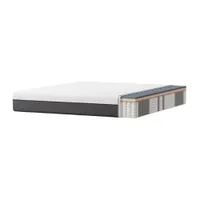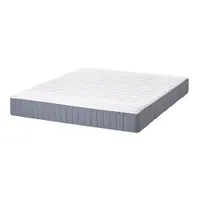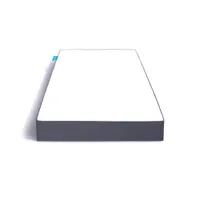I’m a professional mattress tester – these are the 5 best mattresses of the 150 I’ve tested
My top mattress recommendations from Simba, TEMPUR, Sealy, Hypnos, and more

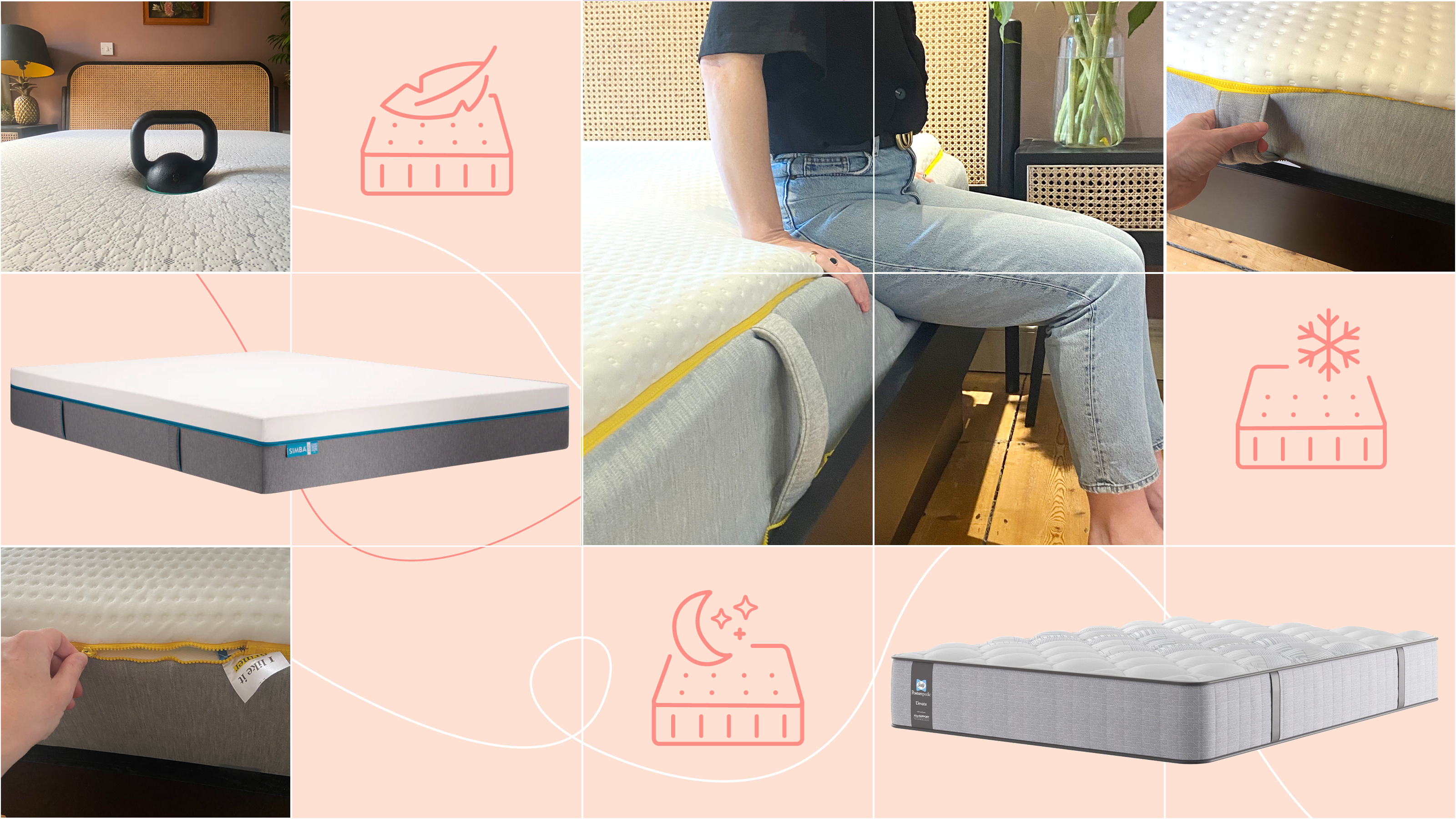
Why you can trust Ideal Home
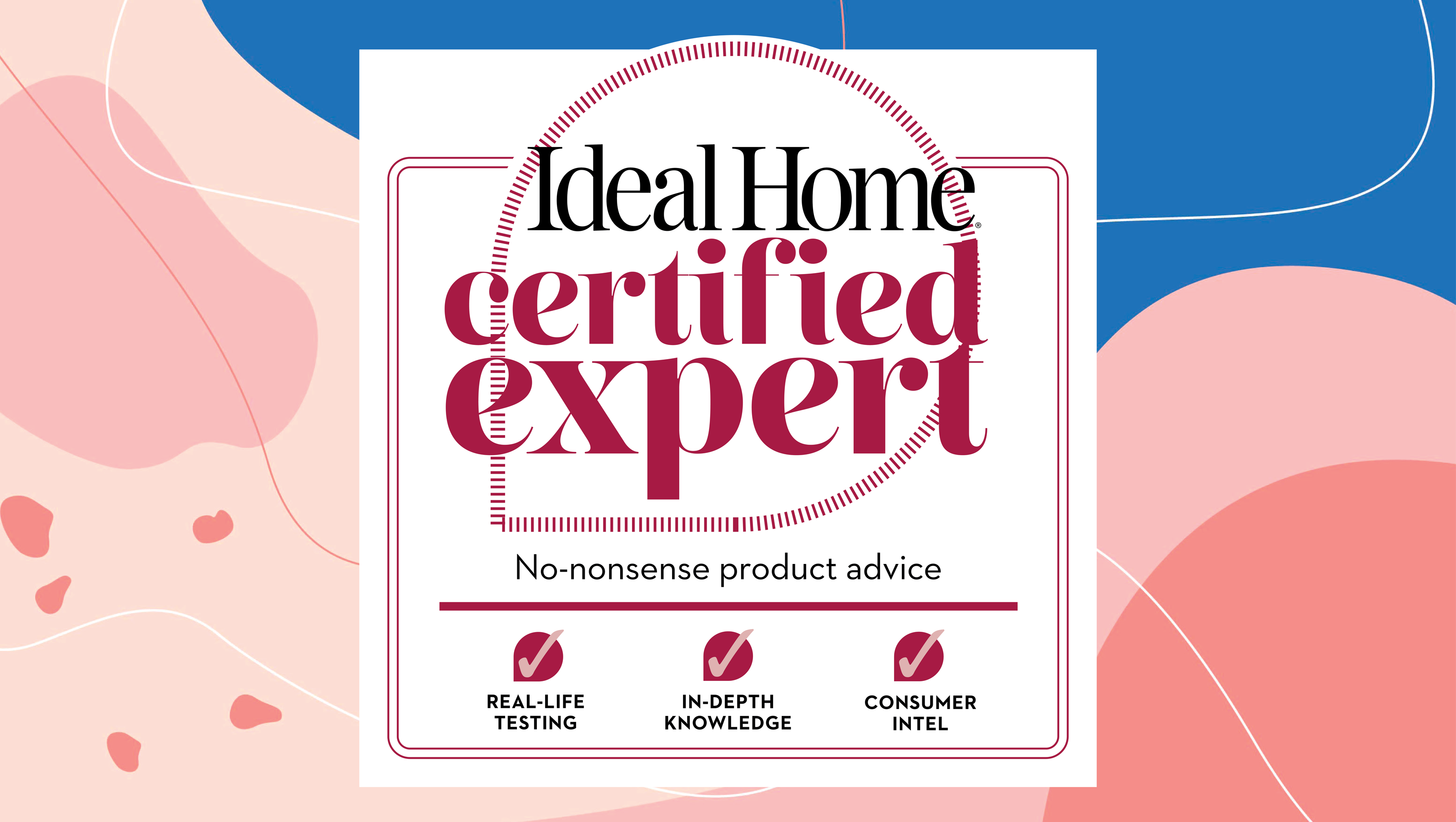
✔ 100 years of industry expertise
✔ 10,000+ hours of sleep product testing
✔ 150+ mattresses showroom-tested
✔ 45+ mattresses reviewed at home
Finding the best mattress for your sleep needs can make a huge difference to the quality of your sleep. I should know, I spent years considering myself a 'bad sleeper', tossing, turning, and overheating in bed, before I realised it was my mattress to blame.
What I've learned, both as Ideal Home’s Sleep Editor and during the past four years as a professional mattress tester, is that one size doesn't fit all when it comes to finding the right mattress. However, if you don't live near a mattress showroom and you don't want to order an online mattress unseen, mattress shopping can be tricky.
That's why I’ve spent the last four years testing the comfort of over 150 mattresses – including bestsellers from Emma, Silentnight, Hypnos, TEMPUR, and many more – to find the best mattress for side sleepers, back sleepers, hot sleepers, and all sorts of budgets.
Overall, the Simba Hybrid mattress remains one of the best that our team and I have tested. However, there are more great options on the market, and this guide will narrow down the best fit for you.
Best mattresses 2026: shop now
- Best mattress overall: Simba Hybrid
- Best budget mattress: DreamCloud Hybrid
- Best mattress for back pain: Sealy Newton Posturepedic
- Best mattress for side sleepers: Hypnos Pillow Top Select
- Best memory foam mattress: TEMPUR EASE
How I test
As Ideal Home's expert mattress tester, over the past four years, I've personally lain on over 150 mattresses in-store, at trade shows, and through at-home testing. Following this research, I selected only the top candidates to put through our rigorous Ideal Home mattress testing.
This means that over 45 mattresses have been slept on at home for a month, by either myself or one of our expert testing panel, to assess cushioning, support, temperature regulation, motion isolation, and edge support in real-life conditions. I also assess any sleep trials, the delivery process, value for money, and, where possible, take into account third-party reviews and environmental impact.
Each mattress we test is then rated out of 5 stars, and I've chosen the five best mattresses overall to include in this guide. However, you can find all the sleep surfaces we've tested on our mattress reviews page.
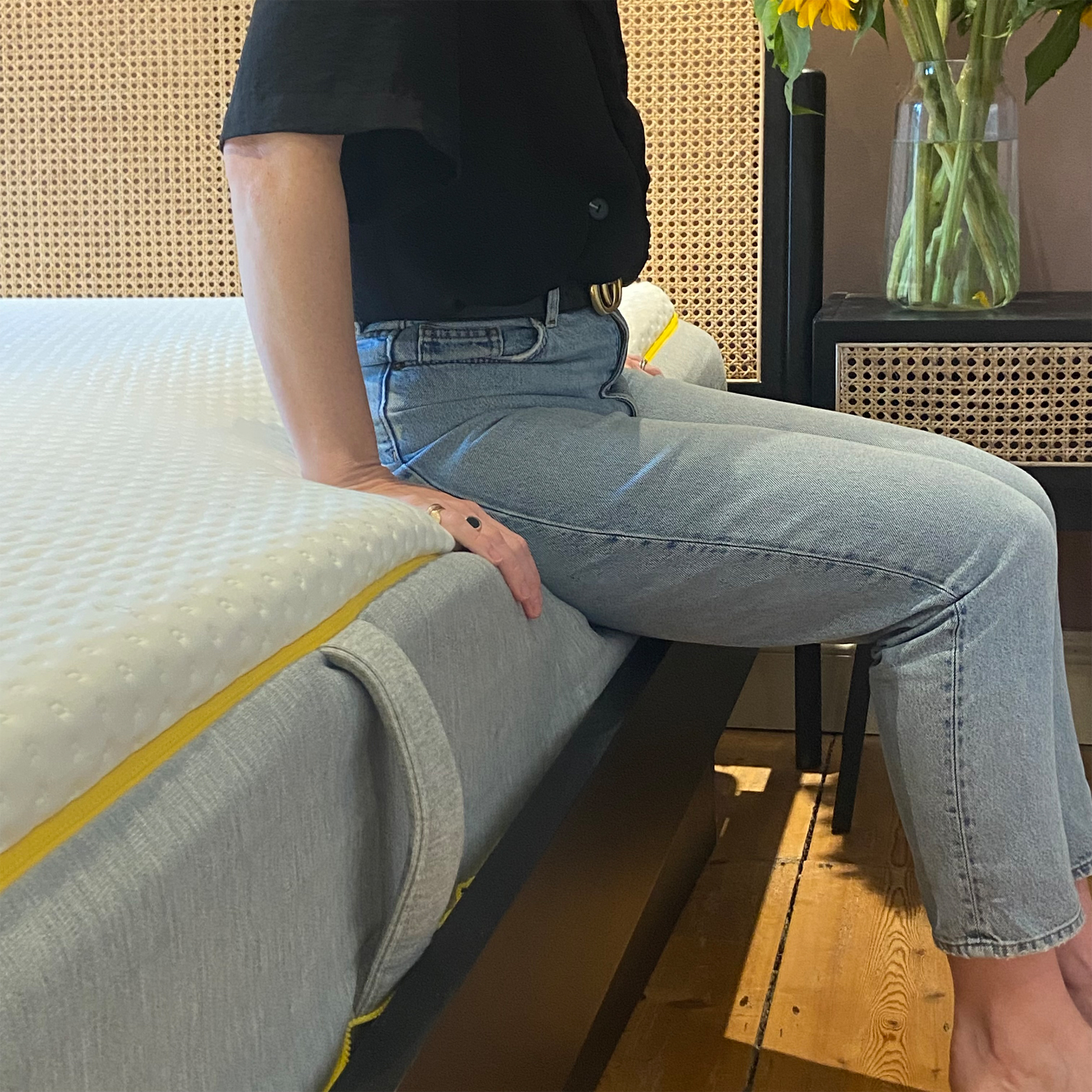
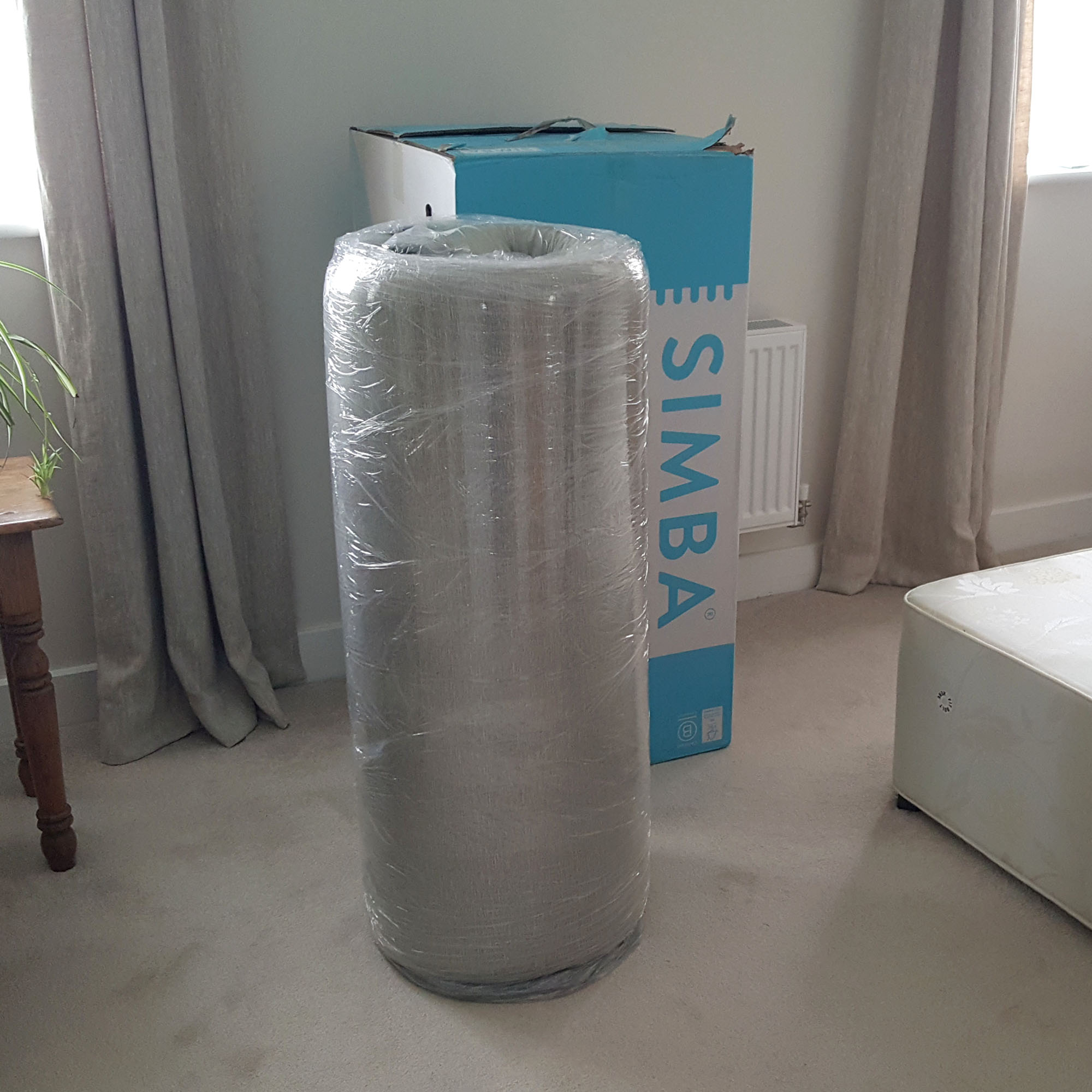
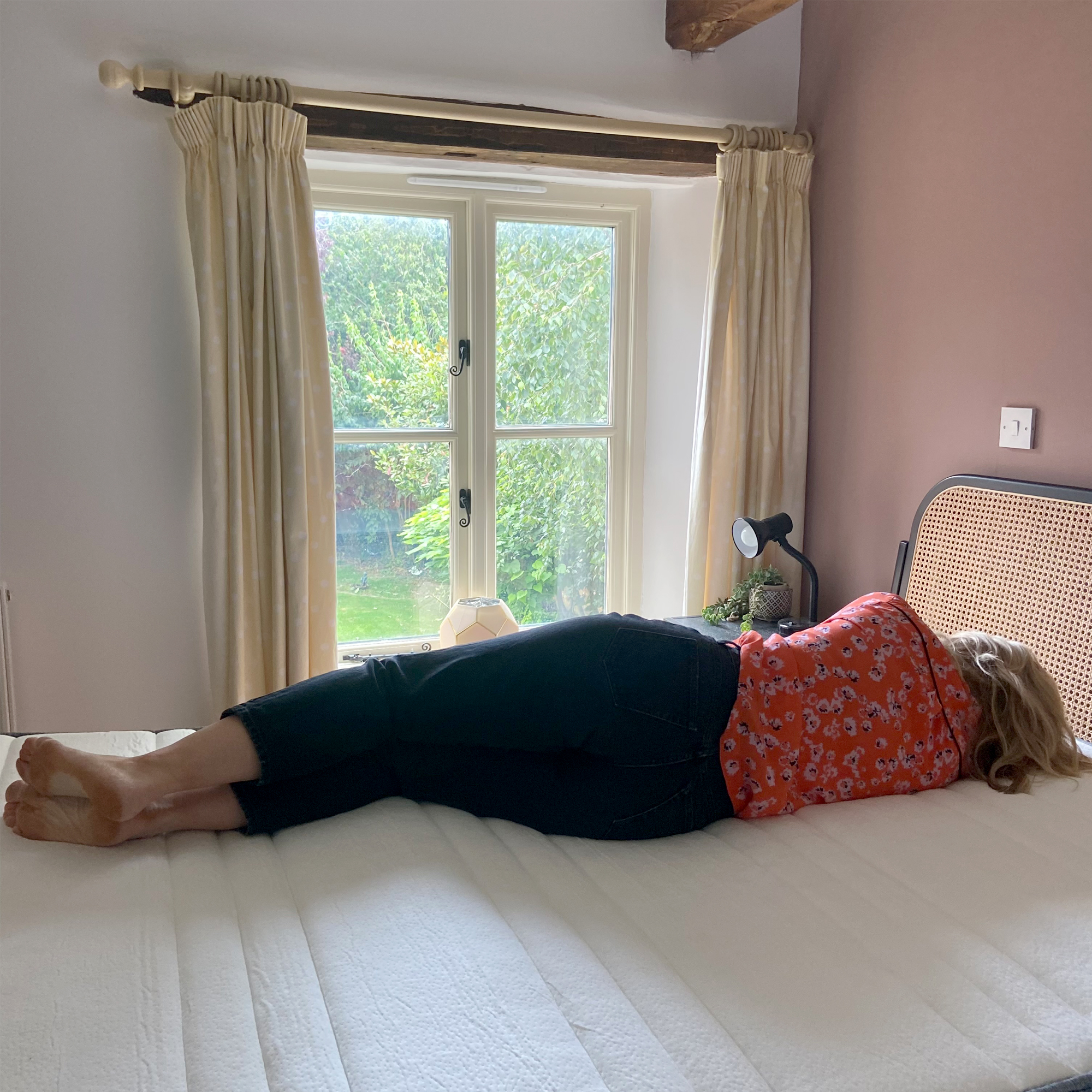
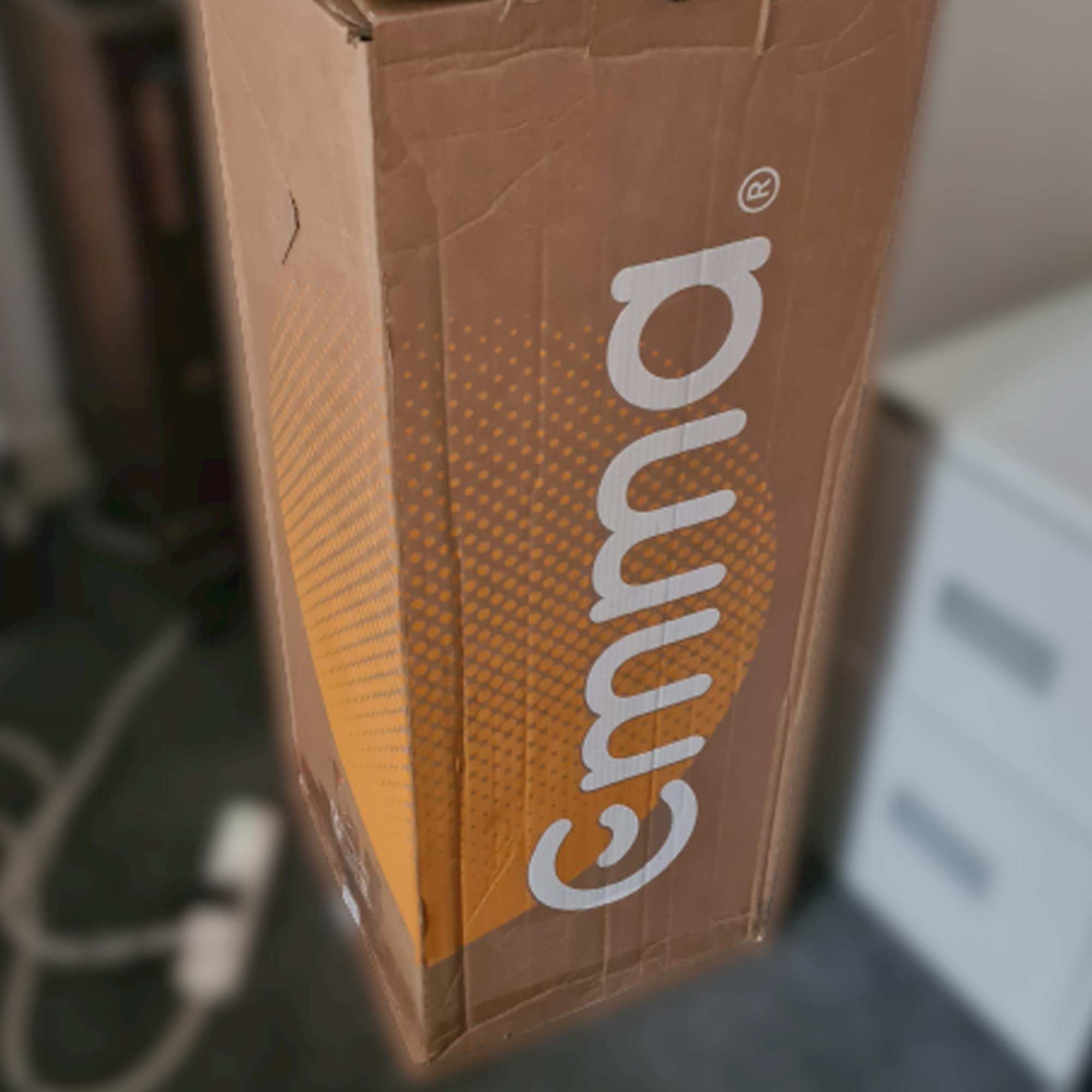
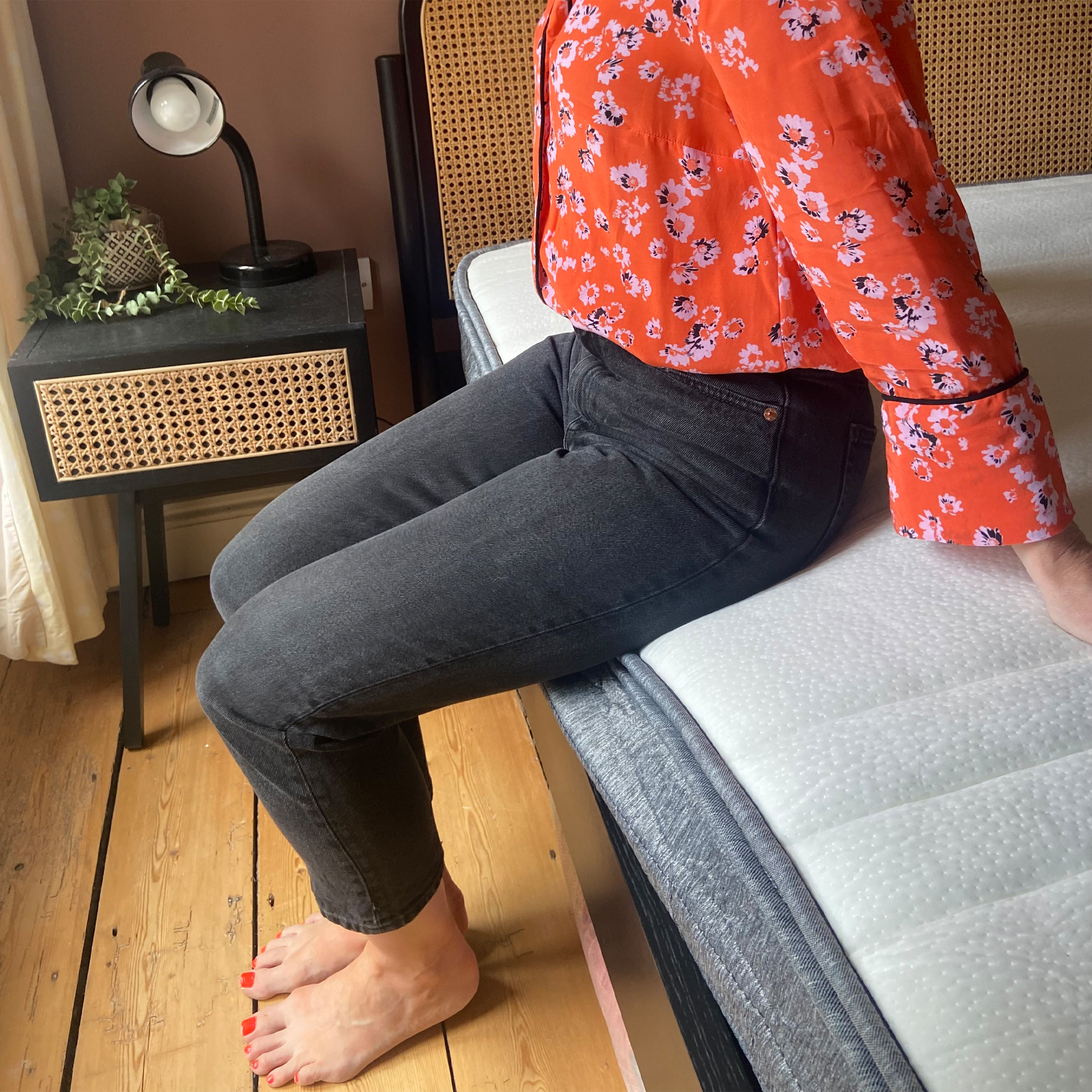
Best mattress overall
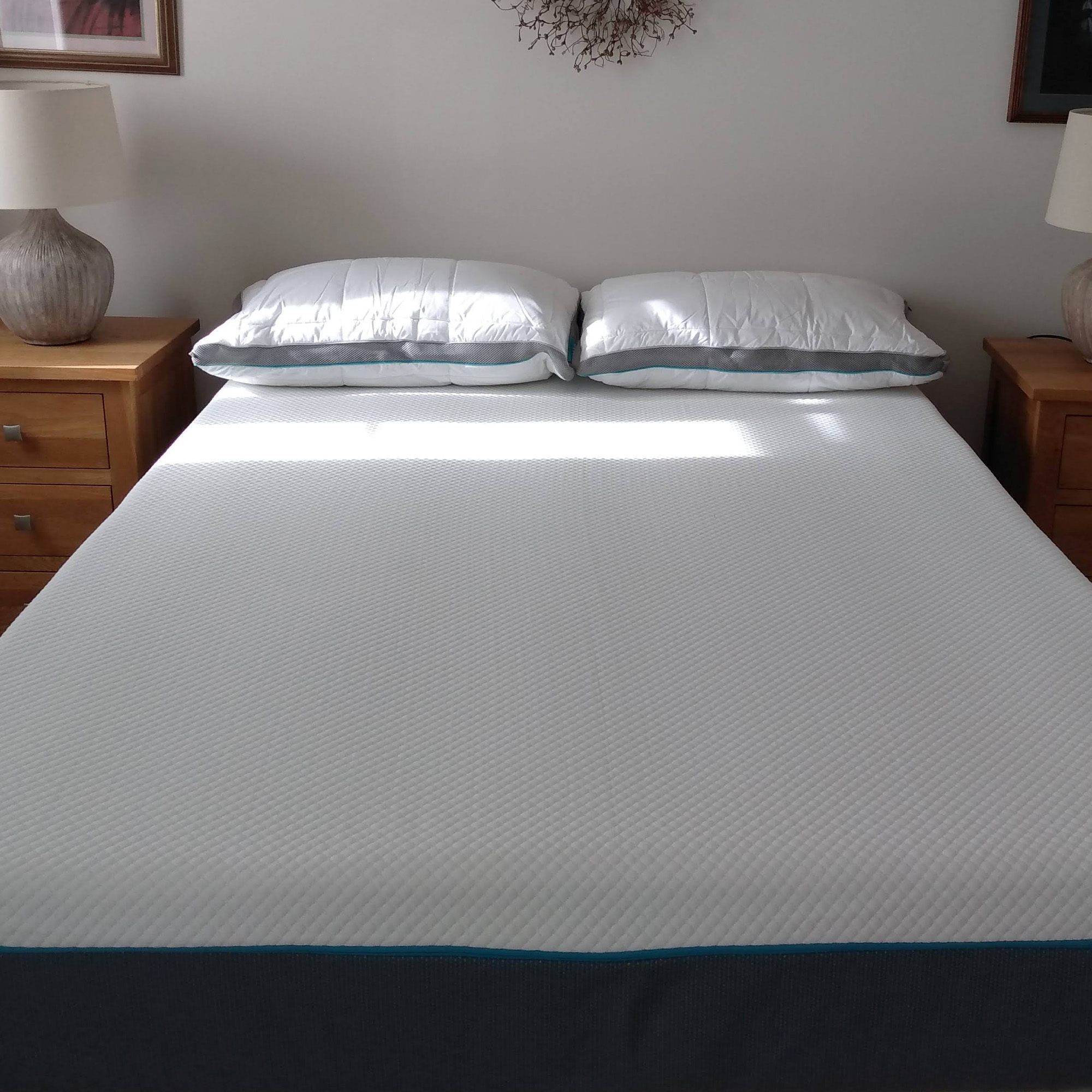
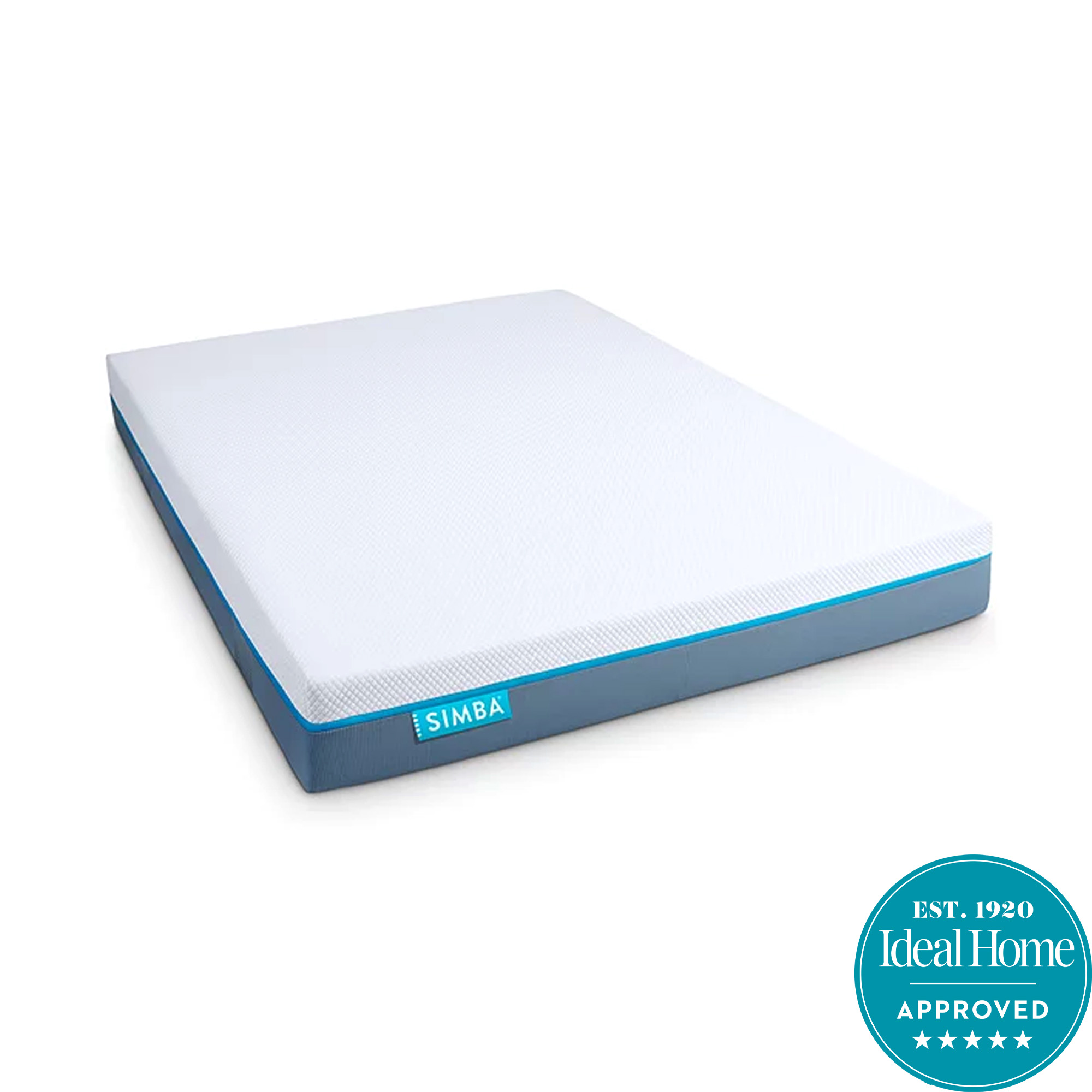
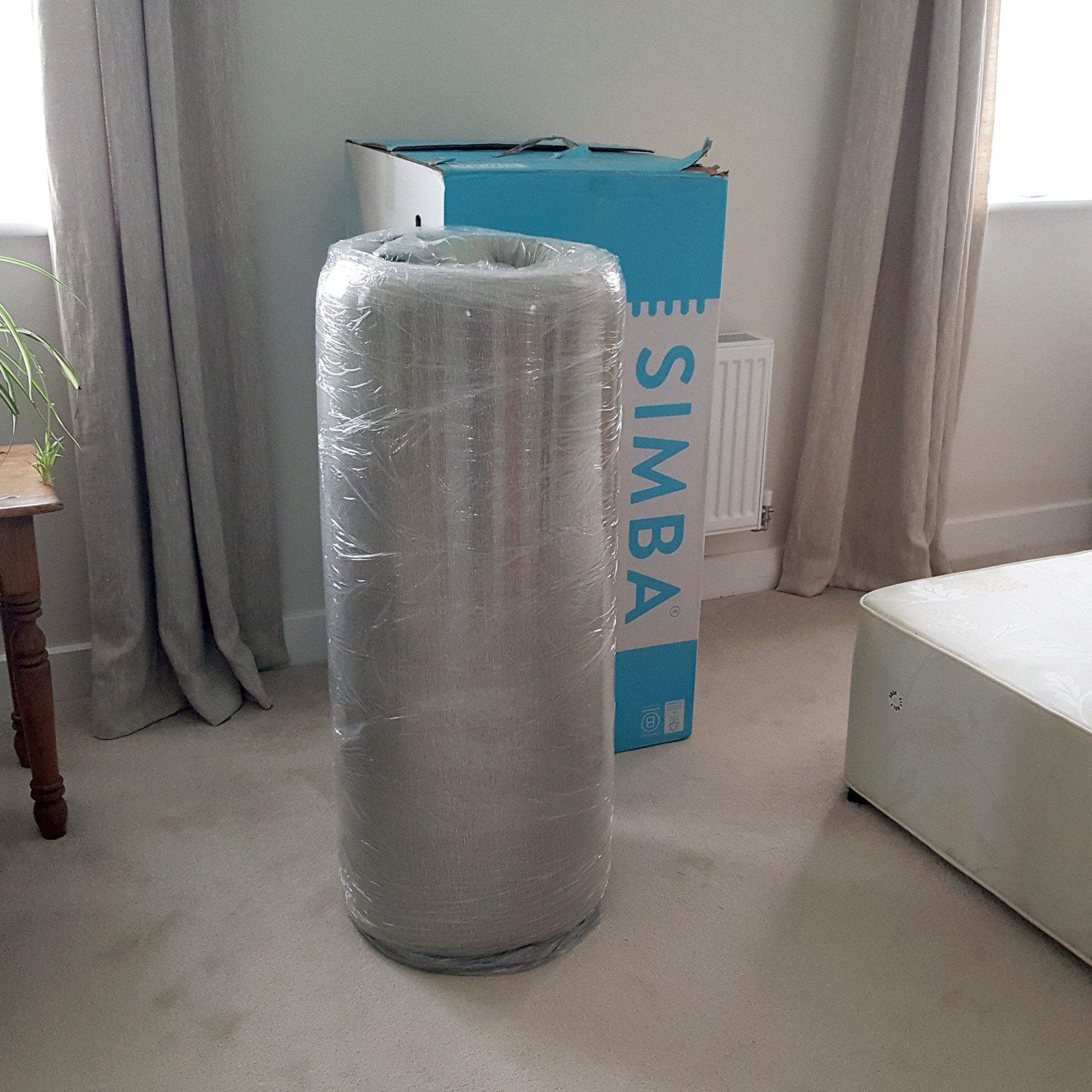
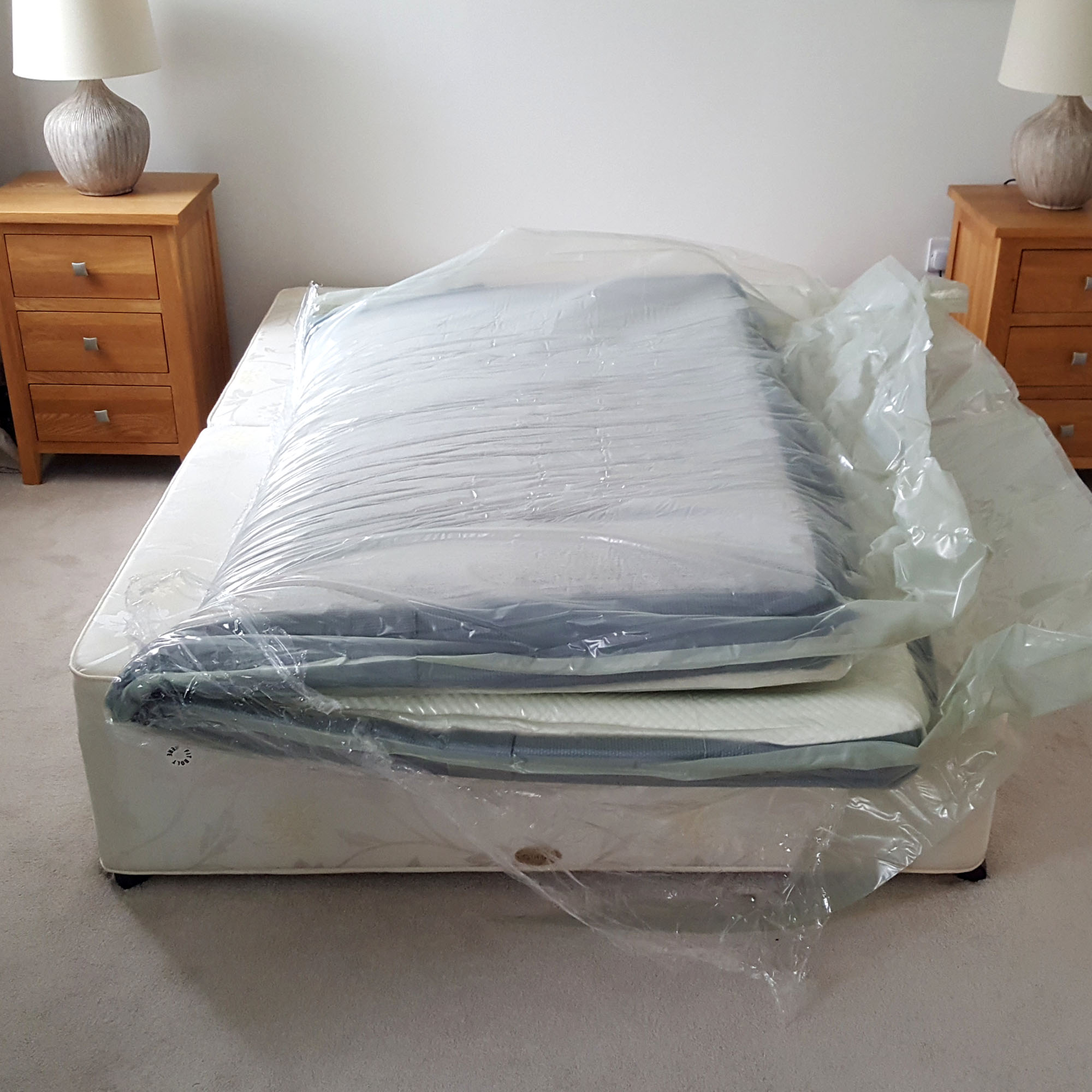
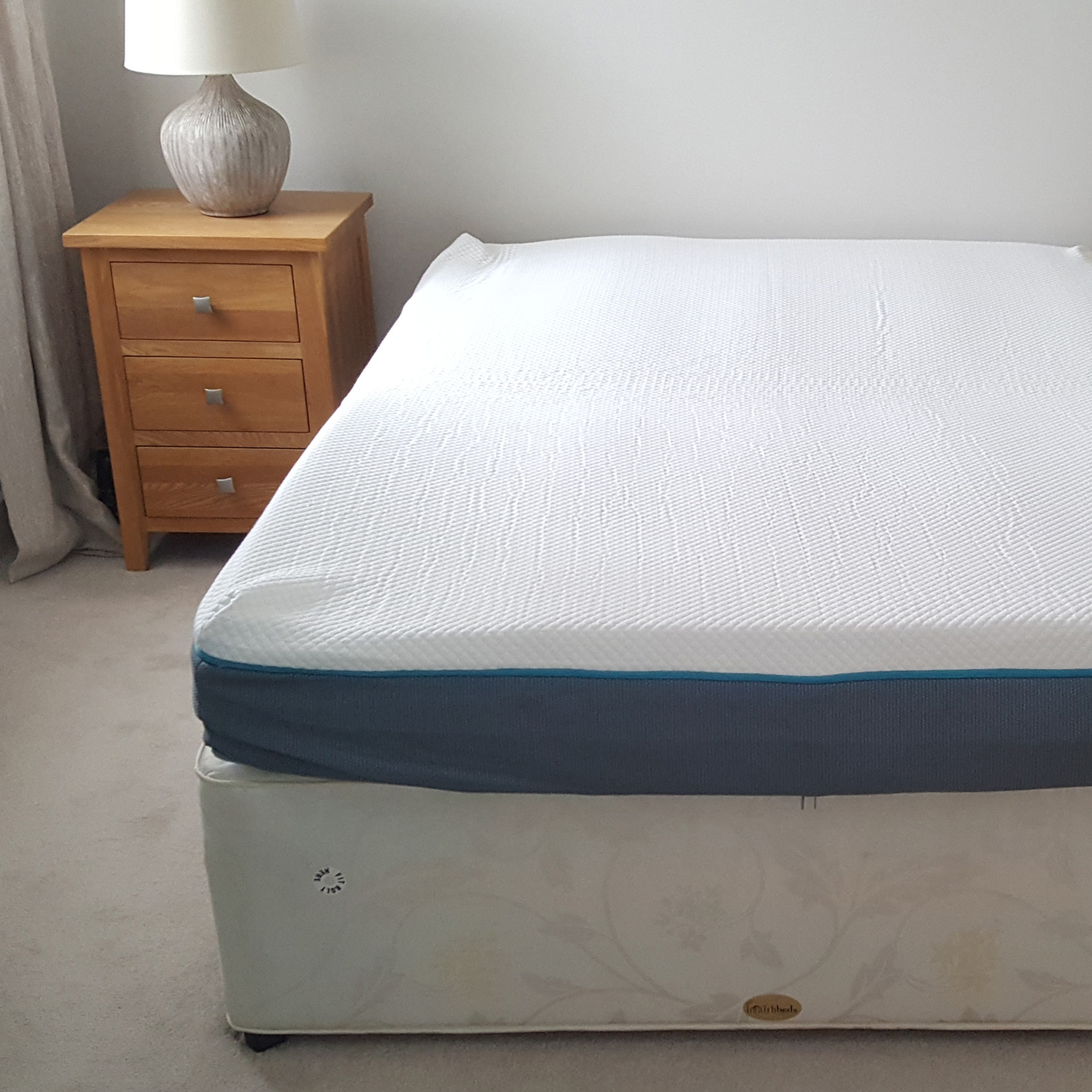
Specifications
Reasons to buy
Reasons to avoid
The Simba Hybrid is Simba's bestselling mattress, and once I got it onto my bed, I could easily see why.
This is technically a hybrid mattress, but the memory foam top layer is paired with micro rather than full-sized springs. Before testing, I wondered if this would mean it felt too soft, but it feels bang-on medium-firm, with just the right mix of support and cushioning pressure relief around my hip and shoulder when I sleep on my side.
No wonder our expert testing panel has dubbed it the 'Goldilocks of mattresses – not too soft or too firm'. Although if you're a heavier-weight sleeper, I would recommend opting for the Simba Hybrid Pro mattress instead. This feels a little firmer, but has more spring support.
As a hot sleeper prone to overheating on memory foam, I've also been impressed by its temperature regulation. The synthetic fill isn't as breathable as a mattress filled with natural materials, like the Hypnos Pillow Top Select further down this list, but Simba's graphite-infused open-cell memory foam sleeps cooler than any other memory foam mattress I've tested.
Add to that good motion isolation that makes it a great option for couples as you won't be disturbed by a fidgety bed partner, a sleep trial that allows you to test out the mattress for 200 nights in your own home, great third-party reviews, a hassle-free delivery process, Simba's ongoing commitment to lowering its environmental impact, *and* great value for money, and I think the Simba Hybrid rightly deserves its 5-star rating.
Tested by: Amy and Linda – Linda's full Simba Hybrid mattress review has more detail.
Best budget mattress
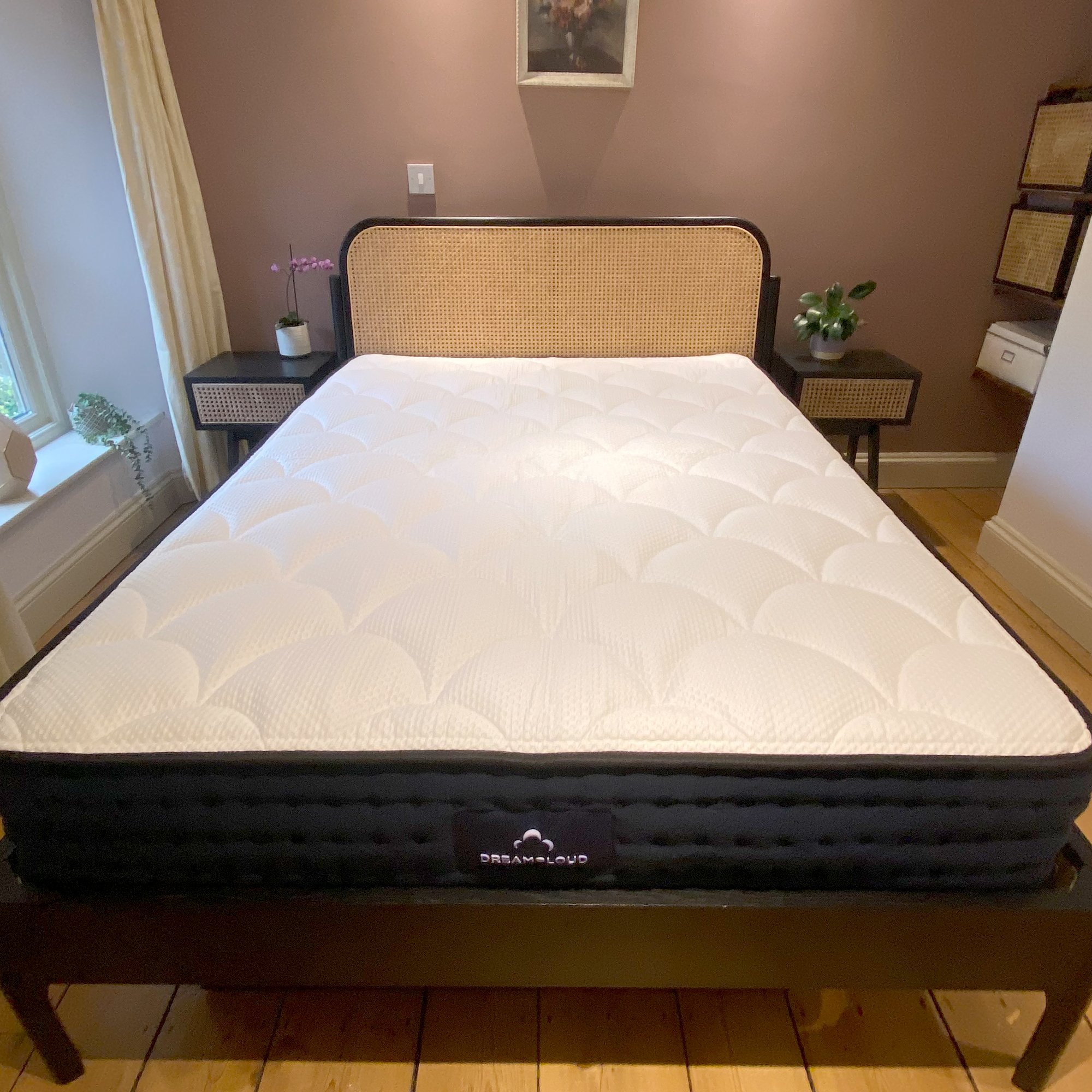
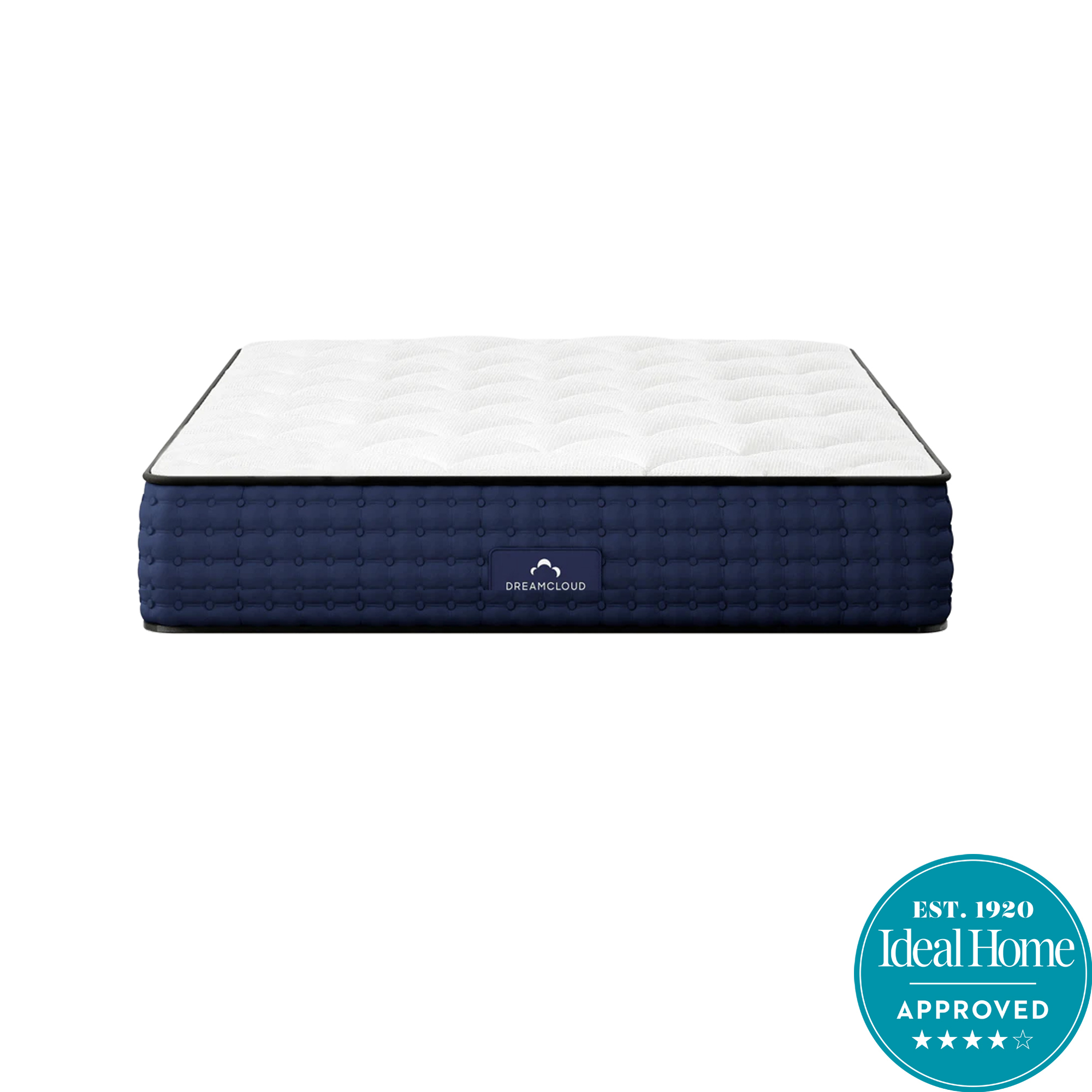

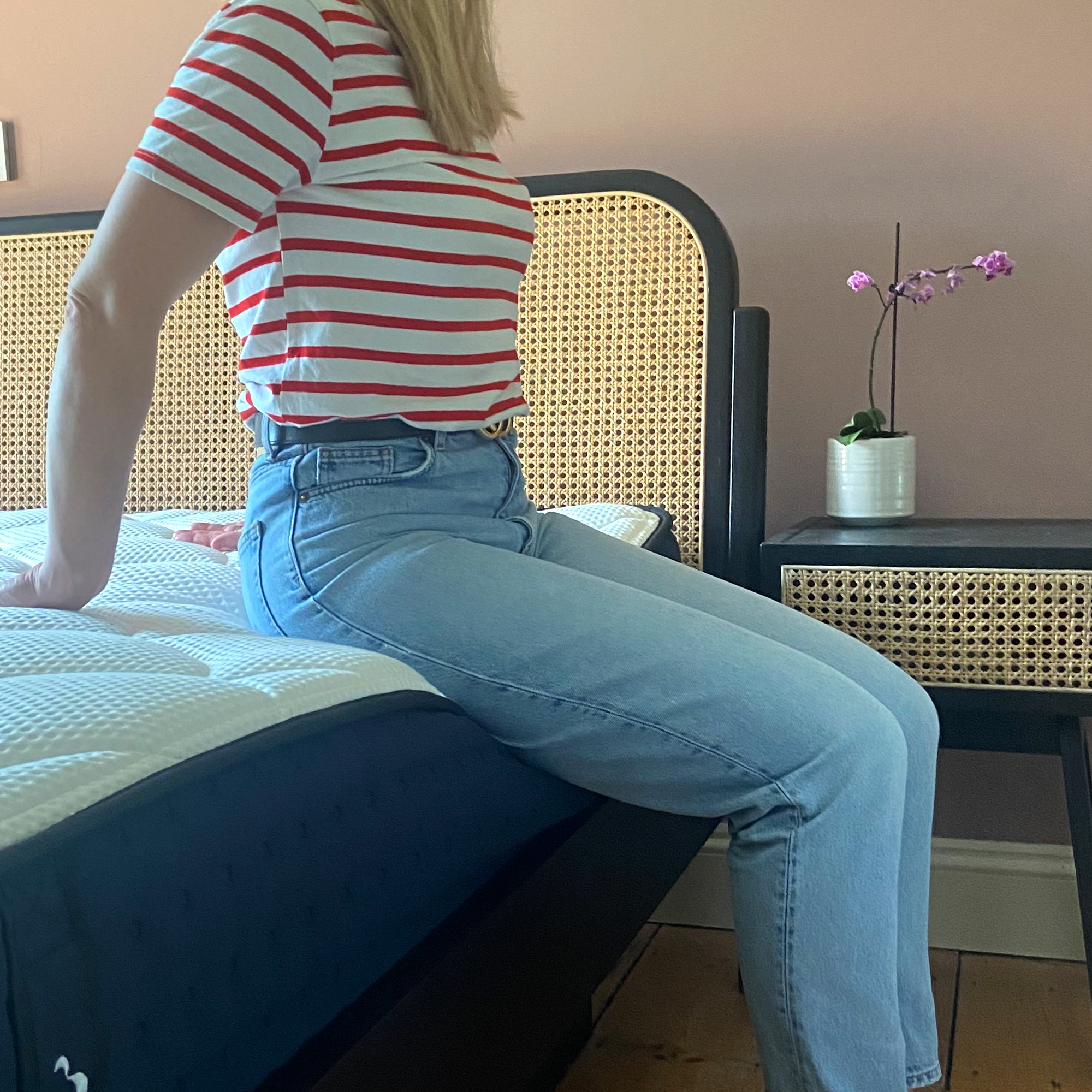
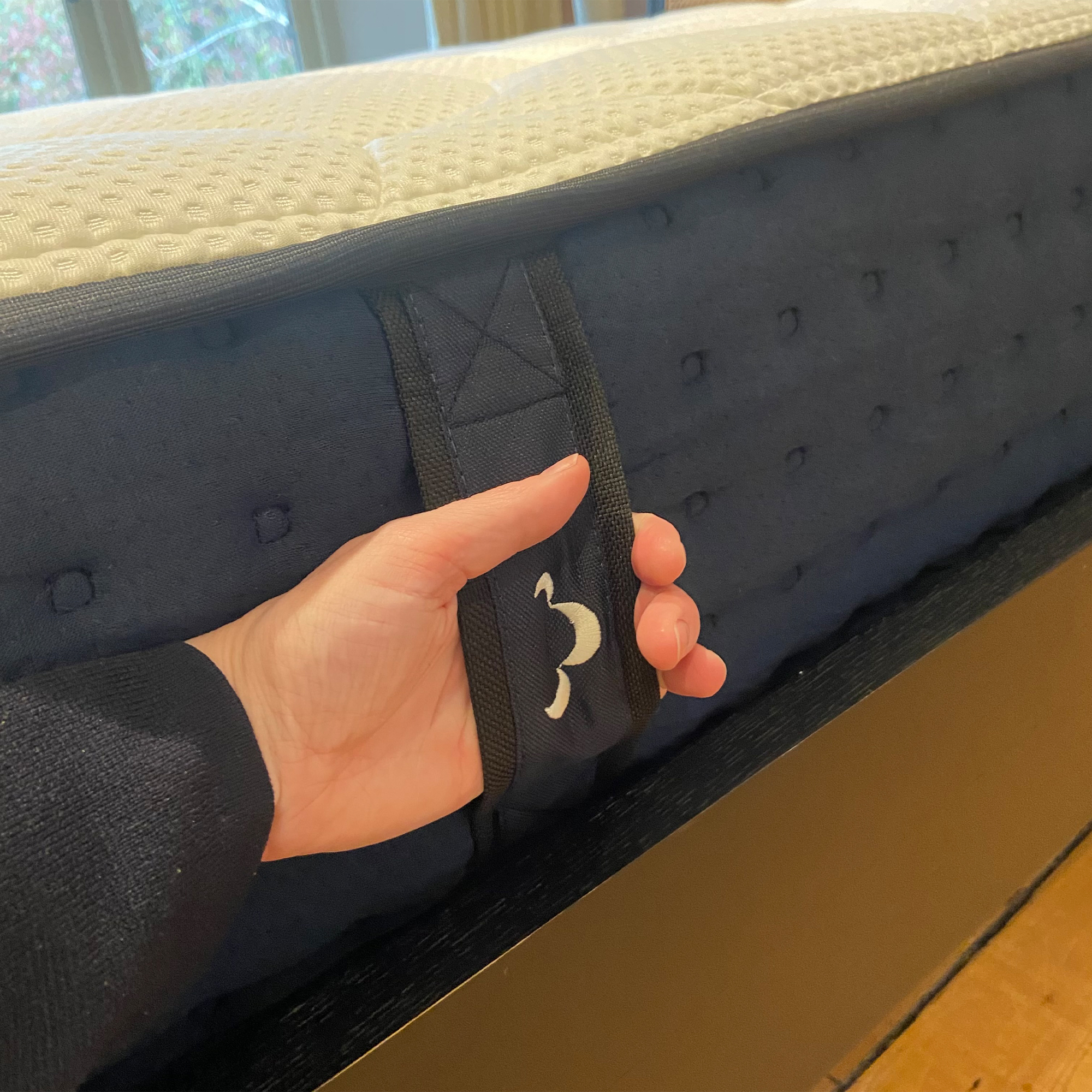
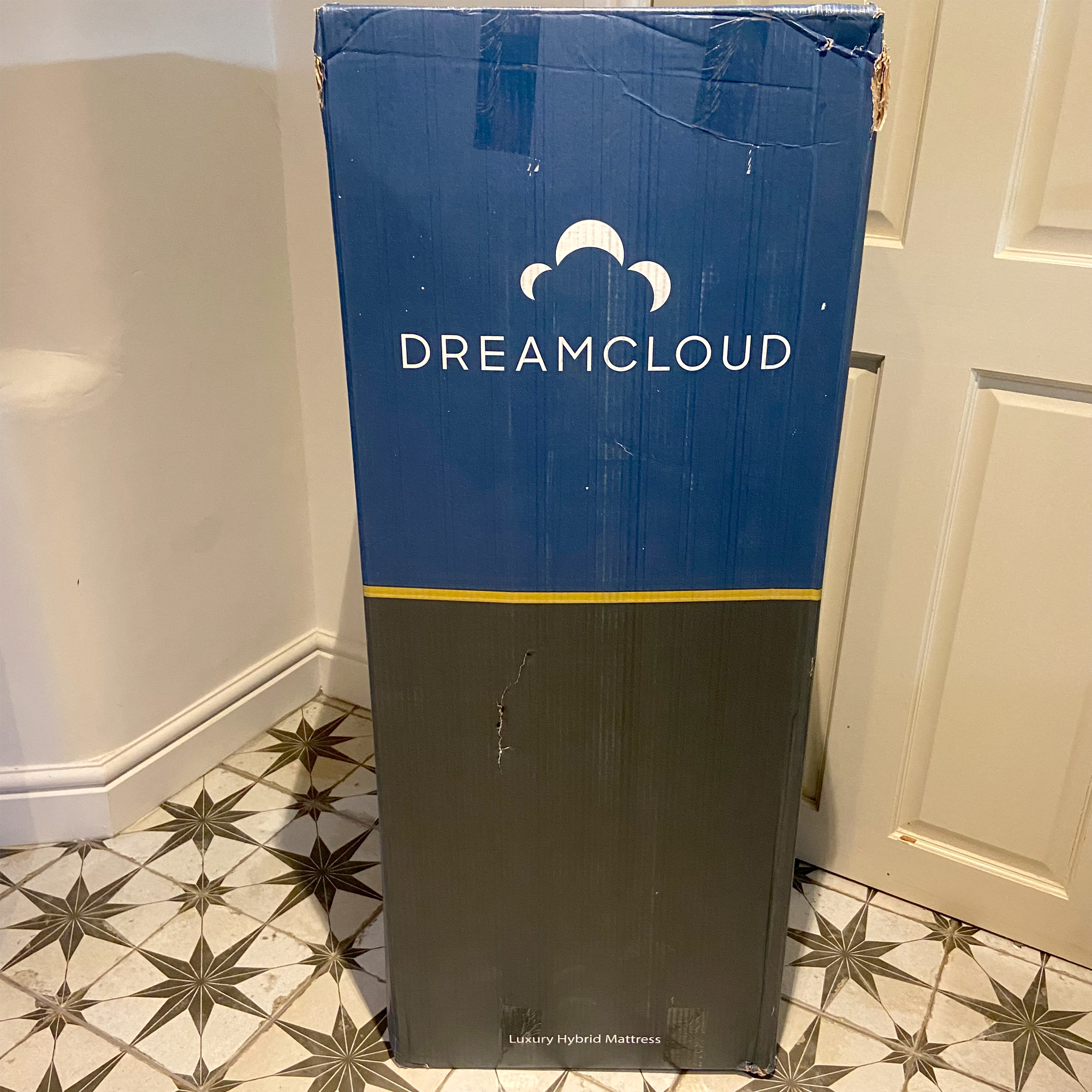
Specifications
Reasons to buy
Reasons to avoid
Our expert tester, Rachel, slept on this mattress for a month, and having compared it to numerous other budget-friendly options – including the £649 Simba Hybrid Essential, the £449 REM-Fit Hybrid Pocket 1000, the £418 Emma Hybrid Original, and the £219 IKEA VALEVÅG Pocket Sprung mattress – she rated it as the best affordable mattress she slept on.
It's a hybrid mattress with a pocket spring base and memory foam top layer that impressed with its medium-firm tension. This is something I've struggled to find in mattresses below the £500 price point – generally, a lower price point means fewer springs and a softer feel. 'I slept so well on my side, and on my back, I found it was firm enough to prevent my hips and lower back from dipping too low,' says Rachel.
The DreamCloud Hybrid's motion isolation also scored well, meaning we think it's the best mattress for couples in this price bracket, 'my husband often comes to bed later than me,' says Rachel, 'and on some mattresses the movement reverberation of him getting in wakes me, but not on this mattress.' Rachel also found its edge support to be the best of all the affordable mattresses she's tested. 'That meant when the kids climbed into our bed, I could lie right on its edge without any feeling I was about to roll out,' Rachel shares.
Overall, I still think my first choice, the Simba Hybrid Original mattress, is the best value mattress you can buy. But if you're on a strict budget (and there are no Simba deals on when you come to shop), then you might want a cheaper alternative. In which case, at £525 for a full-price double, the DreamCloud Hybrid mattress is my top choice for best budget mattress, plus, its 365-night sleep trial is the longest in the business.
Tested by: Rachel – her DreamCloud Hybrid mattress review has the full lowdown.
Best mattress for back pain
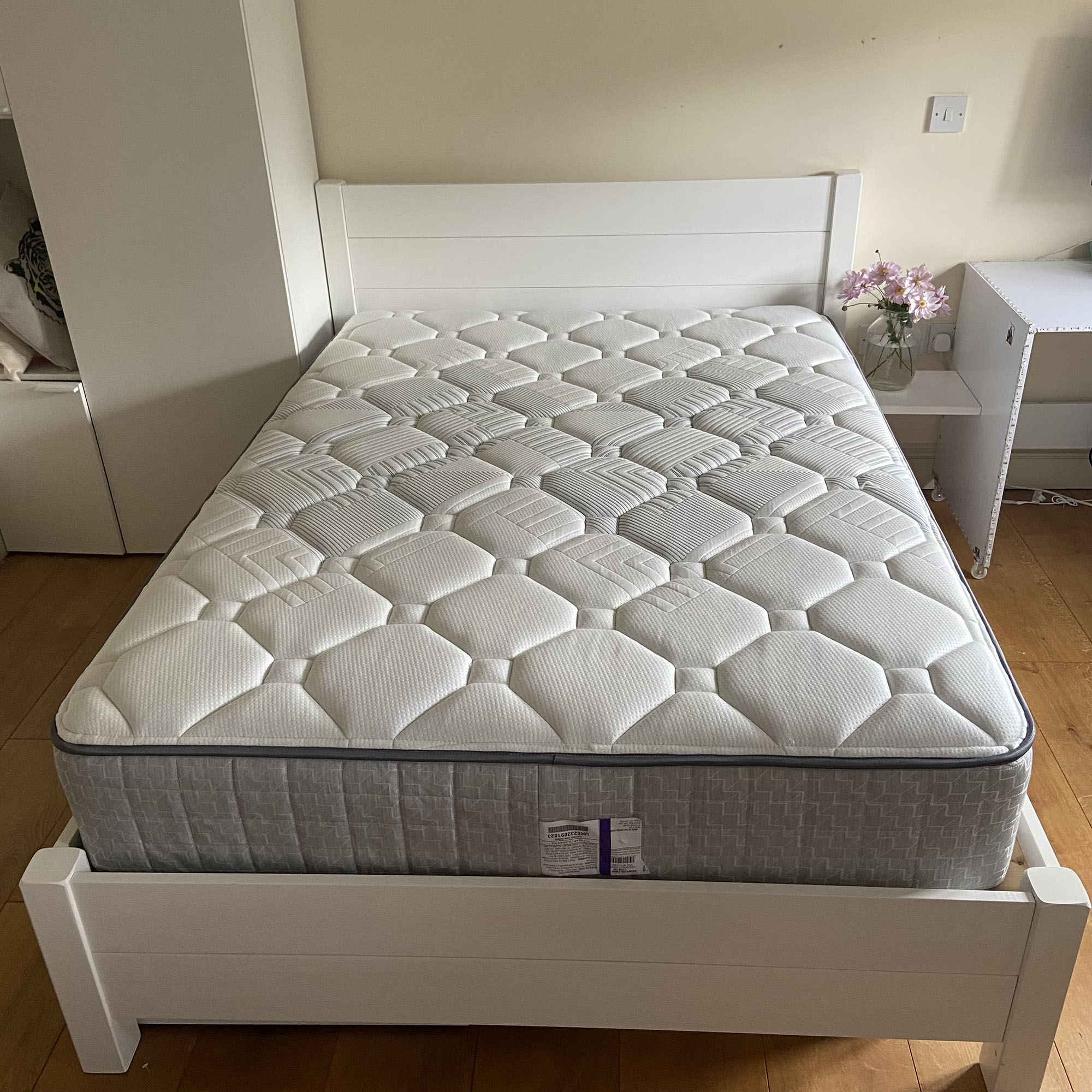
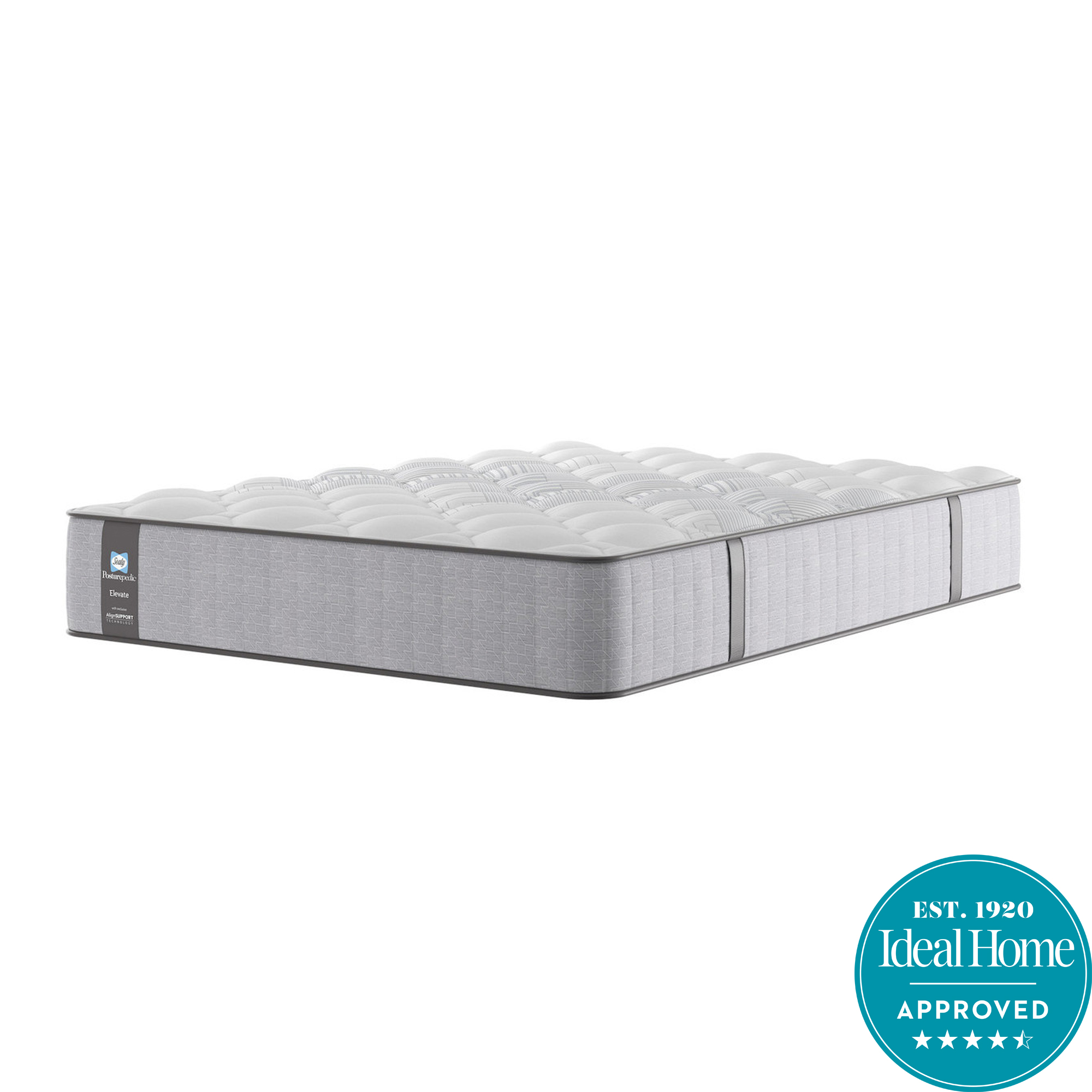
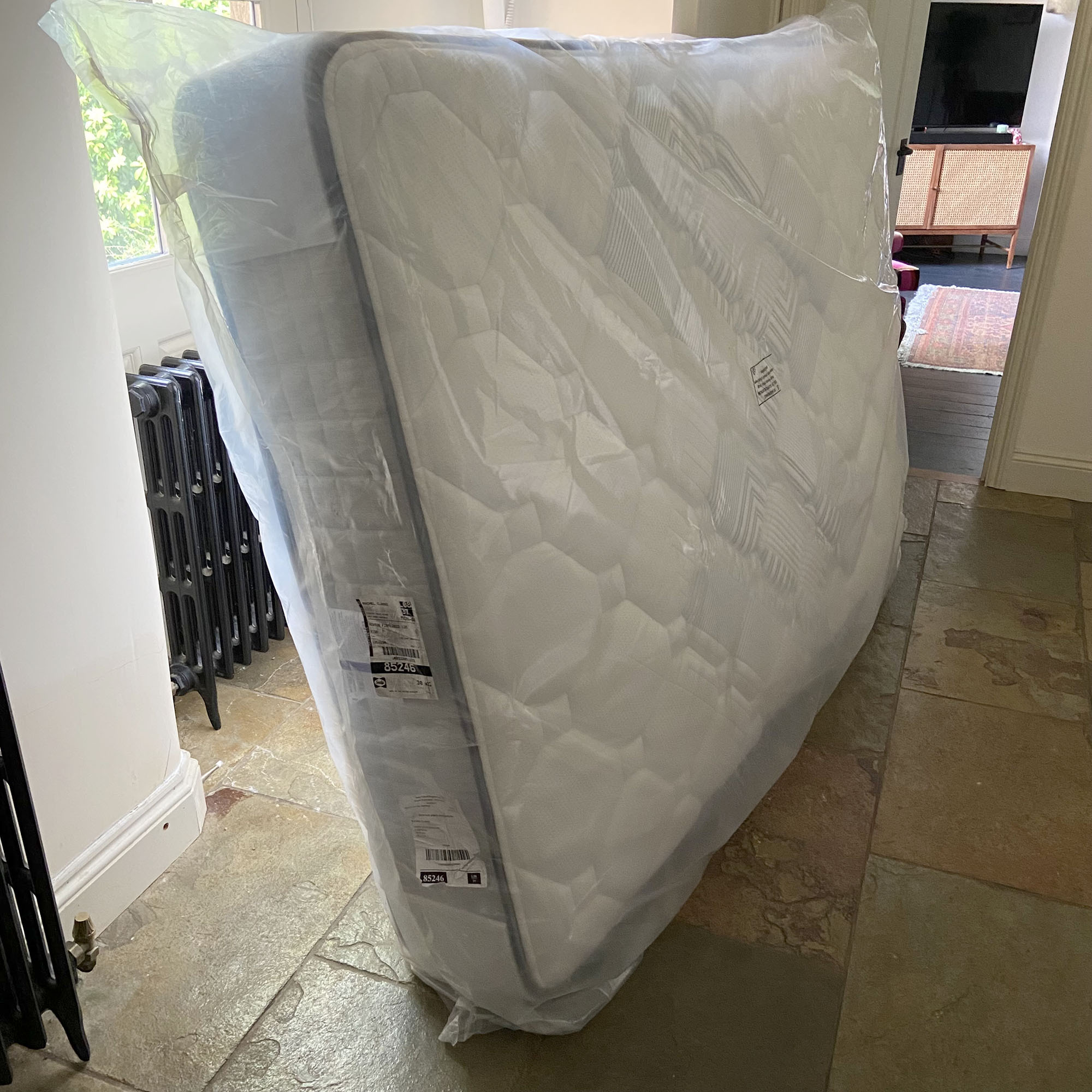
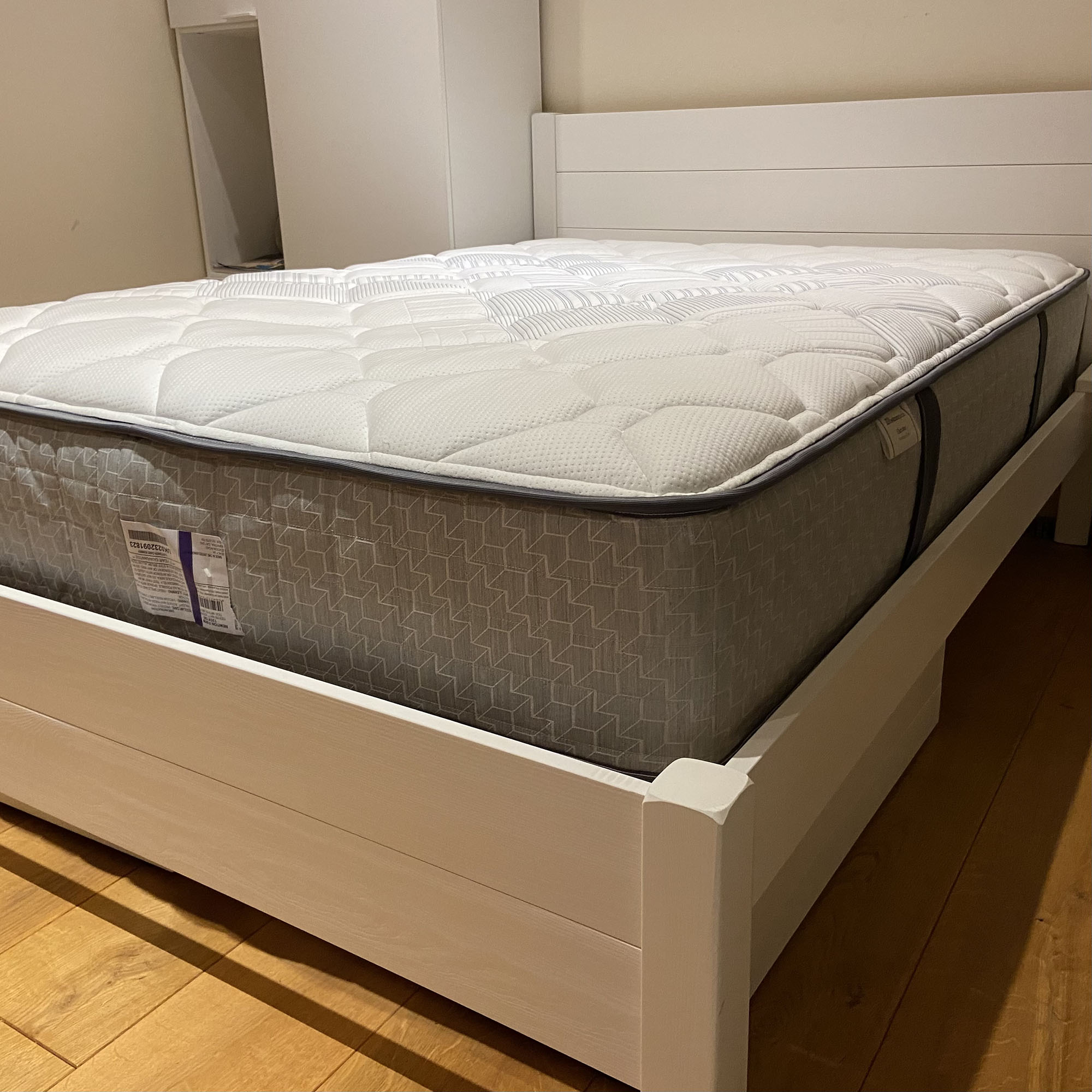
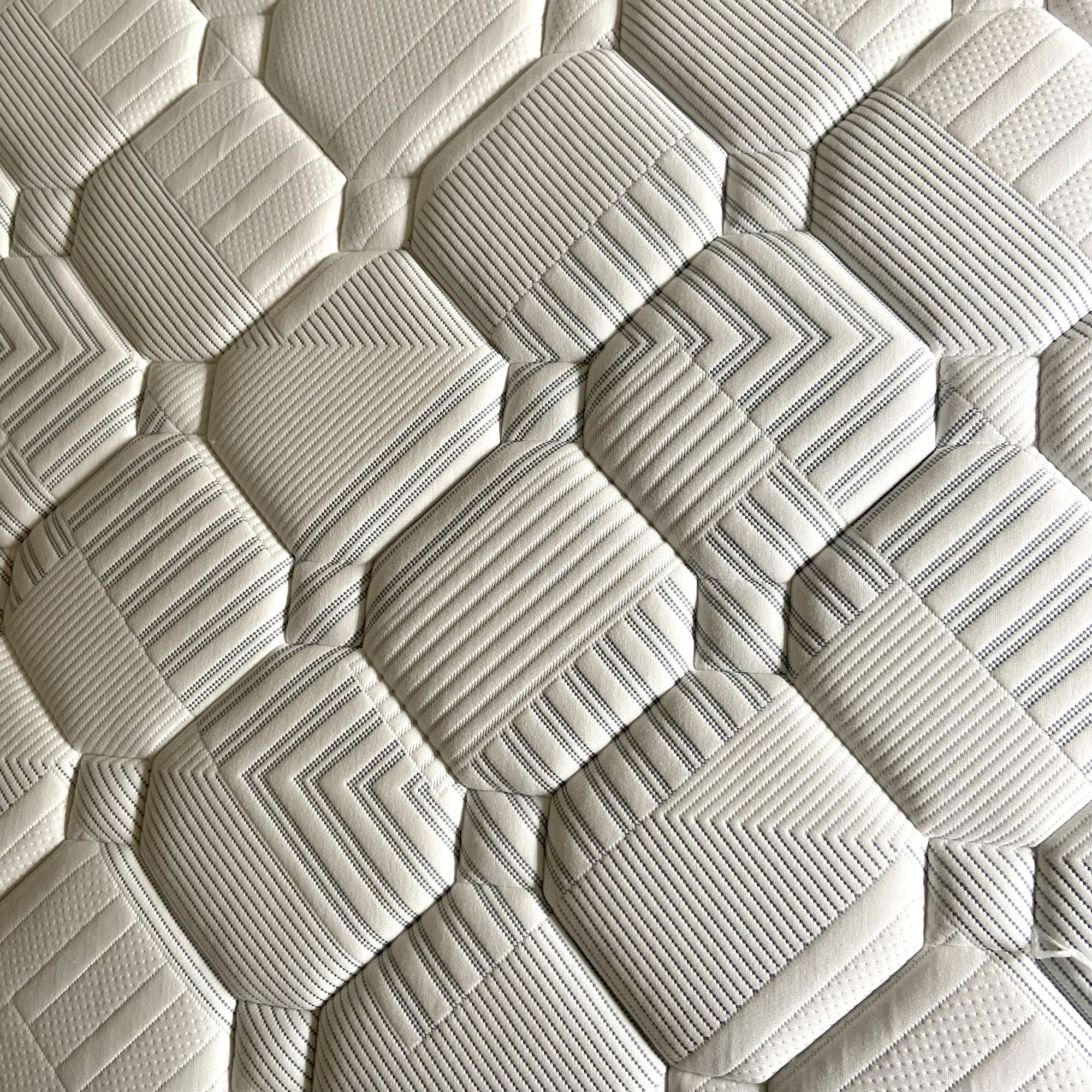
Specifications
Reasons to buy
Reasons to avoid
If your current mattress is causing you back pain, then it may be the wrong tension for you. Most likely, it will be too soft and lacking in support.
Research by the Journal of Orthopaedics and Traumatology says that the best mattress for back pain is one that's medium-firm. However, our weight has a significant impact on how firm a mattress feels for us. The best way to solve this is to opt for a mattress that comes in different tension options so you can find the right feel for you. Like the Sealy Newton Posturepedic, which is available in both medium or firm tension to suit your build.
The Newton is also my top recommendation if you love a firm mattress in general. Thanks to its mix of latex comfort layer and spring support, this is one of the few mattresses I've found that feels firm without feeling *hard* (there's an important difference).
That latex comfort layer means that, unlike many memory foam mattresses, I felt I was lying 'on' the mattress rather than 'in' it during testing. This is important if you have back pain, as you don't want to be struggling to fight out of a memory foam 'hug' to change position in the night. (If you *are* a memory foam lover, the Brook + Wilde Ultima mattress is another good option that comes in a choice of three tensions).
Plus, this mattress has another vital feature if you're prone to back pain, and that's the best edge support I've come across in any mattress. This means there's no dipping (and painful spinal adjustments) if you roll too close to the edge, and there's firm support for getting in and out of bed.
Tested by: Amy and Rachel – find the full details in Rachel's Sealy Newton Posturepedic mattress review.
Best mattress for side sleepers
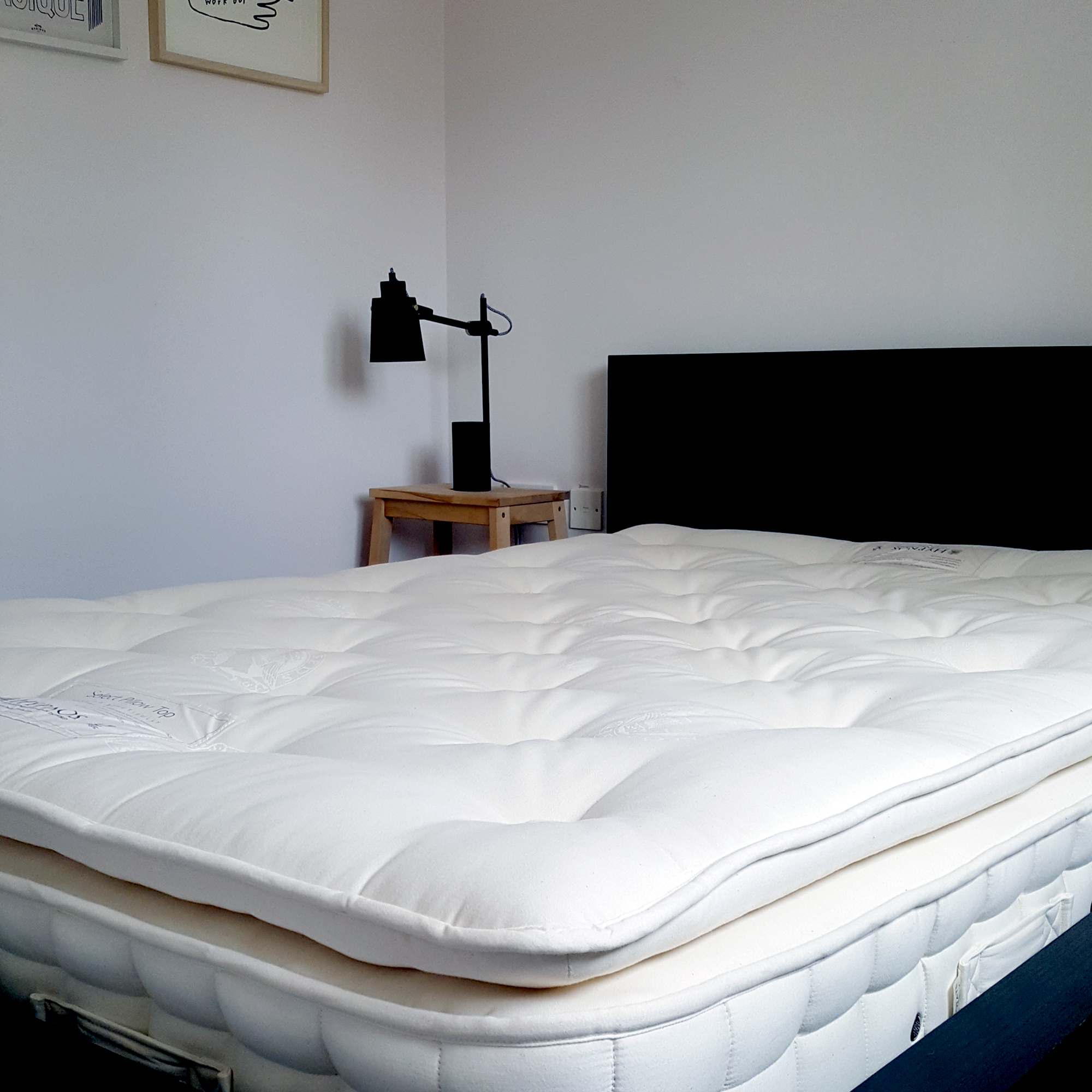
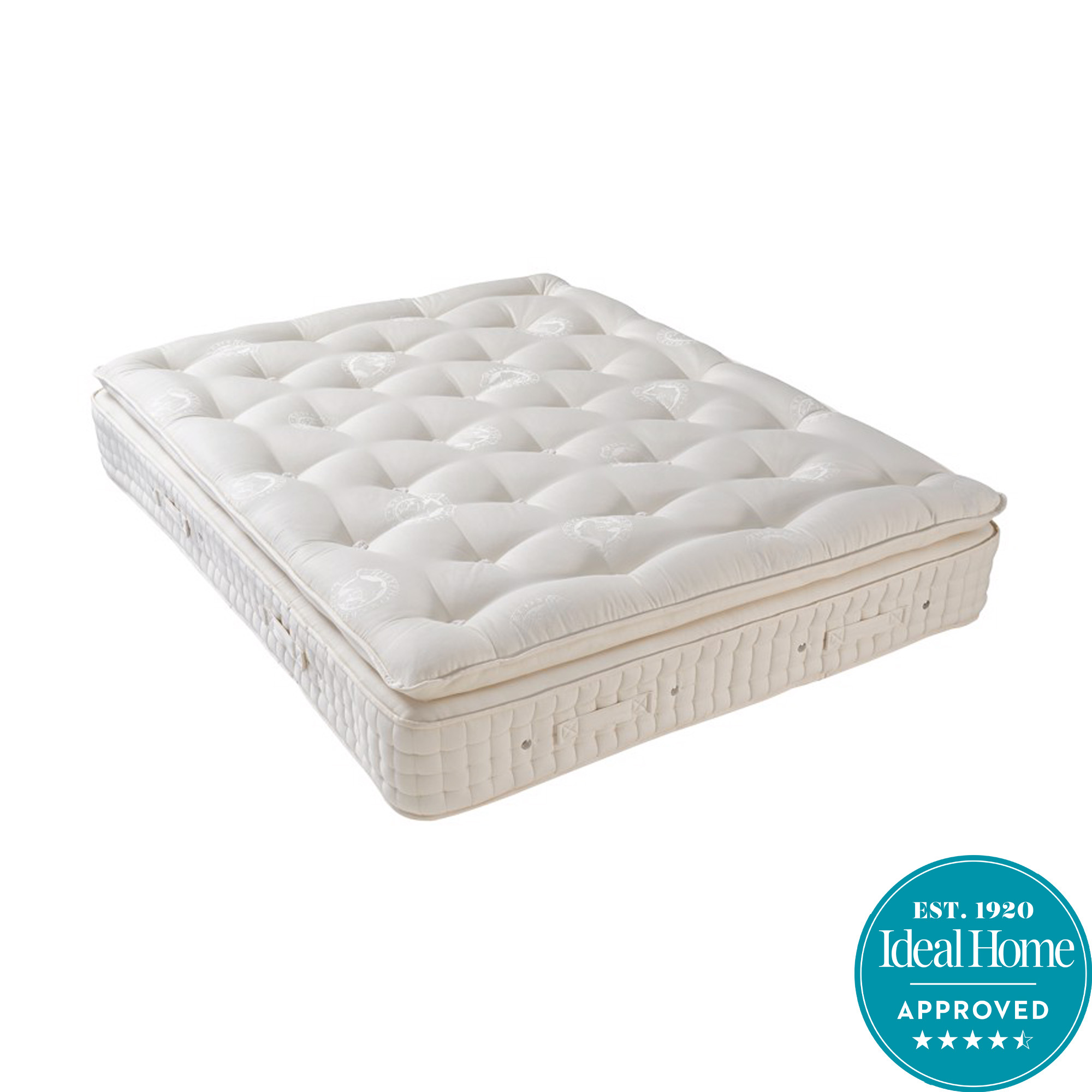
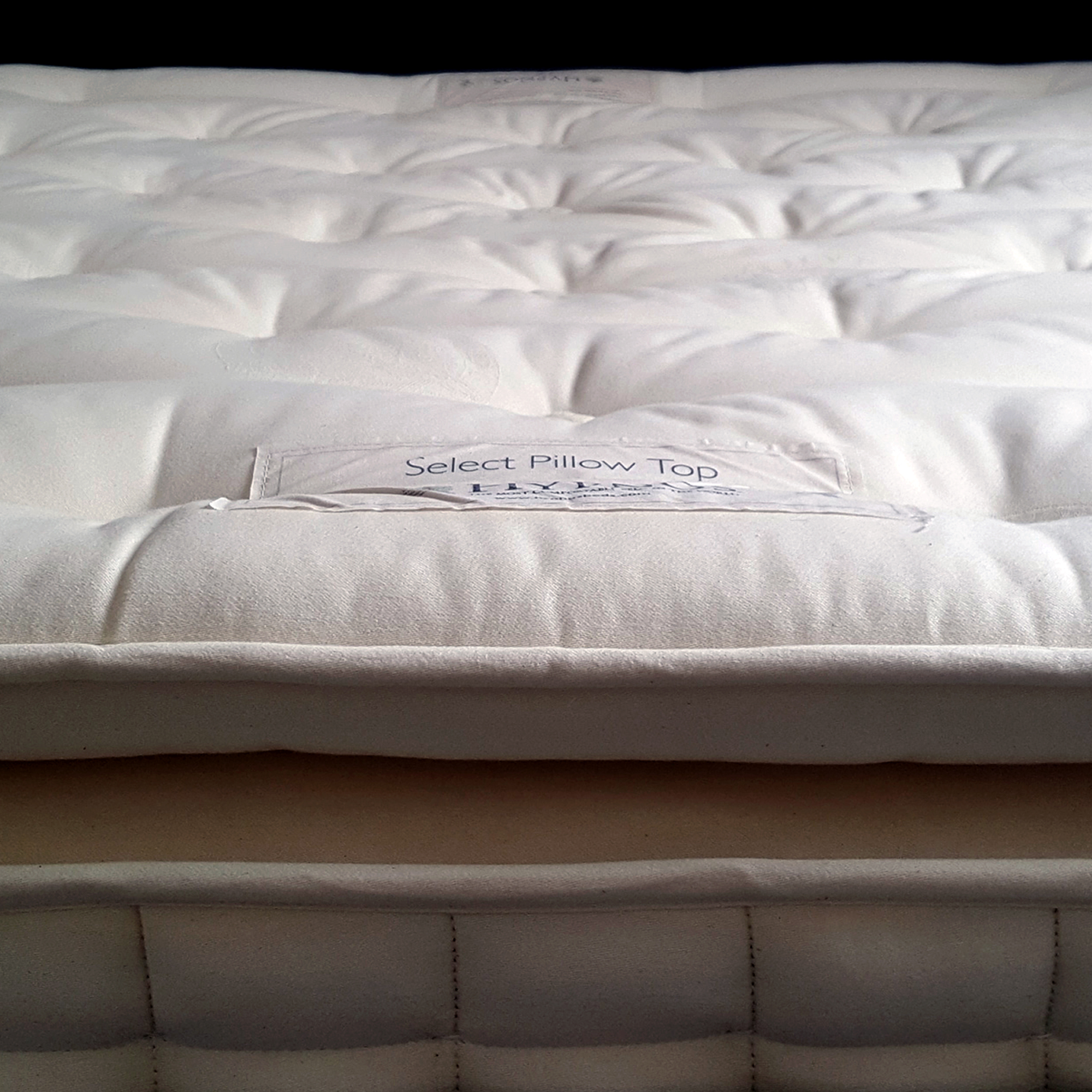
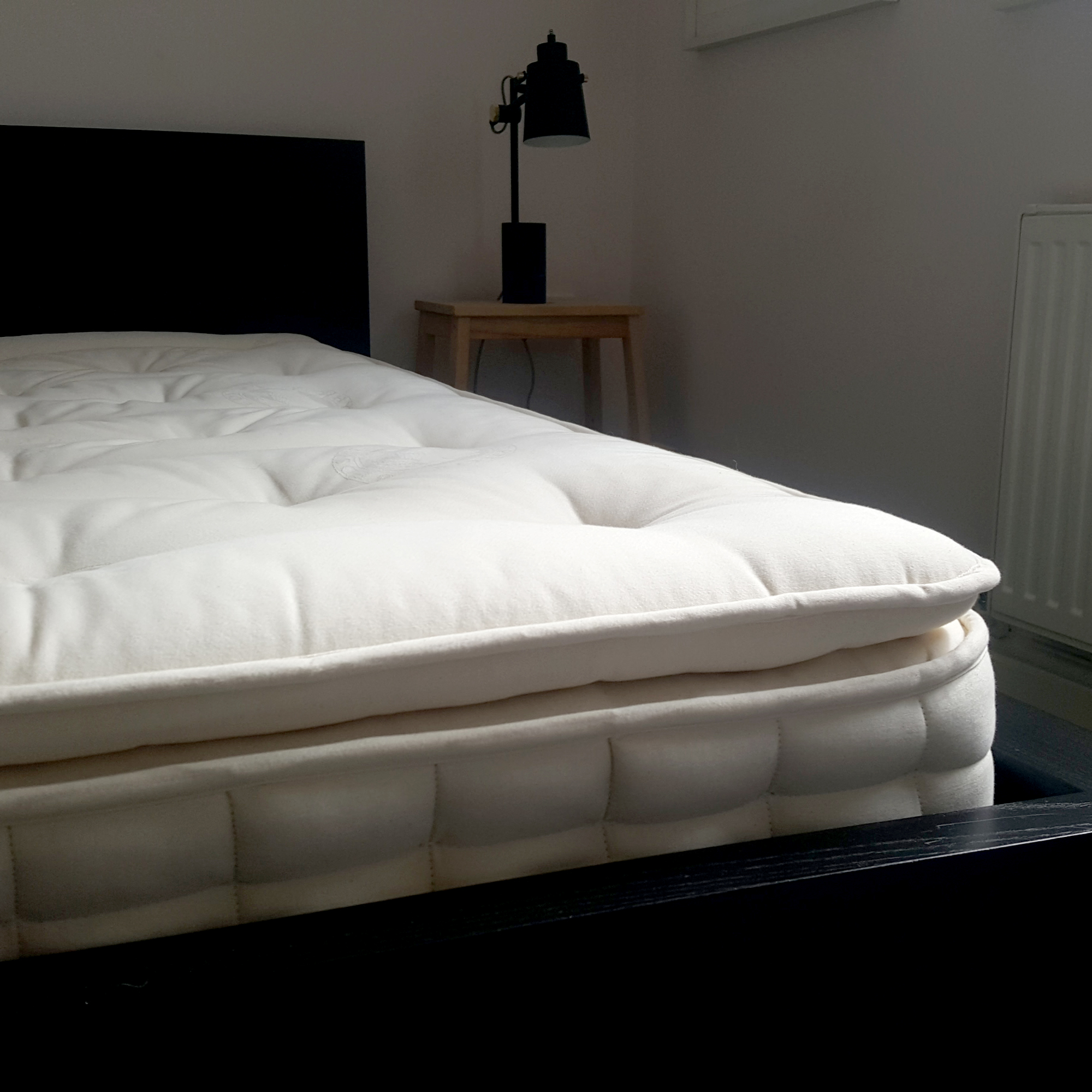
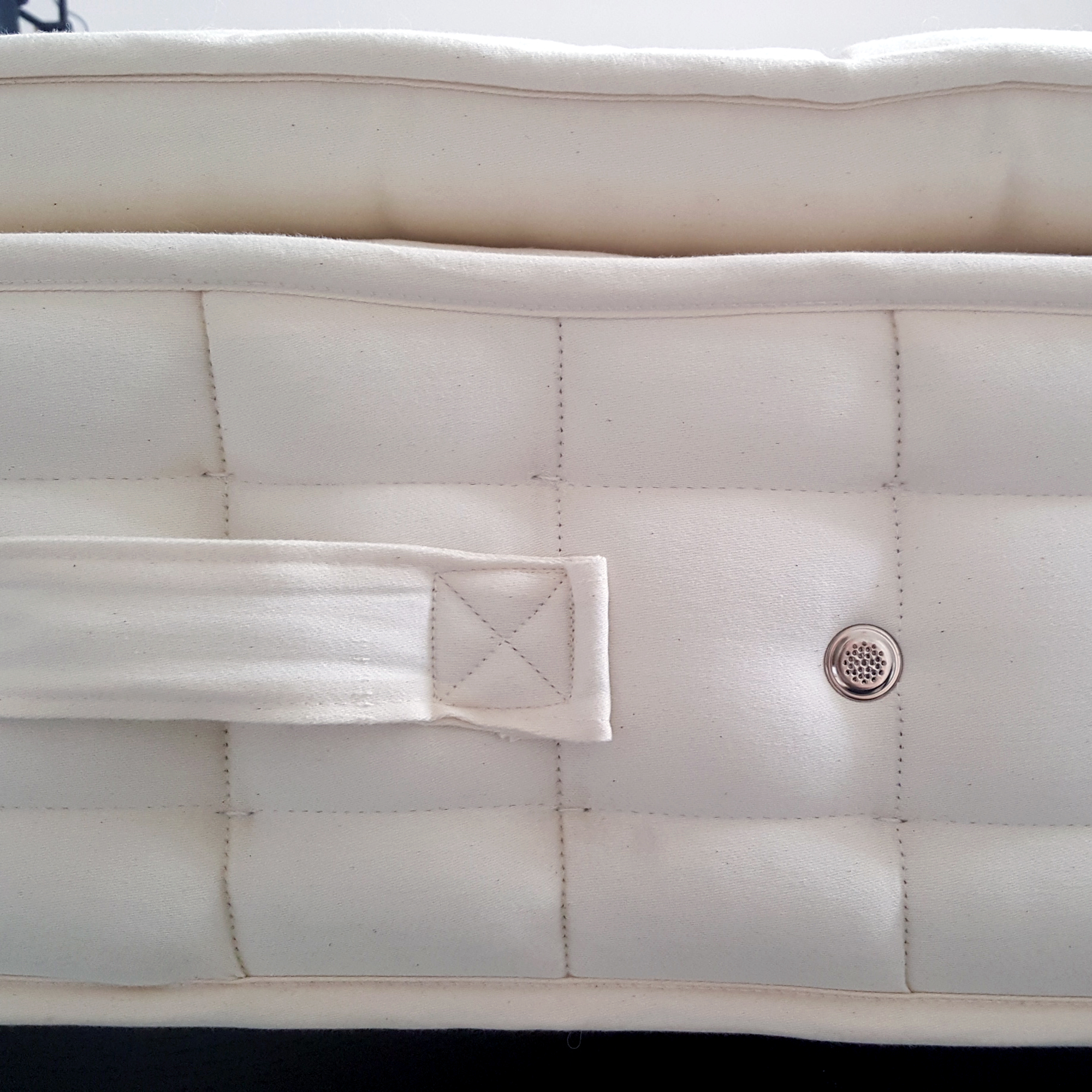
Specifications
Reasons to buy
Reasons to avoid
I'm a side sleeper, and I'm also a hot sleeper, so for me, the Hypnos Pillow Top Select is the ideal mattress.
This is a traditional pocket spring mattress filled with a sewn-on 'pillow top' packed full of cushioning natural materials. I find the padded top is perfect for side sleeping, offering just enough comfort and pressure relief to avoid any tension in my shoulder or hip during the night.
Thanks to its medium tension, the mattress also has a little give to it, which I find helps me to get more comfortable on my side than a firmer mattress would.
The Simba Hybrid Original mattress is another great option for a side sleeper – my mum sleeps on her side, and she prefers the Simba option as she finds its memory foam top layer moulds around her shoulder and hip better – but, as a hot sleeper, for me, the Hypnos wins out.
That's because the fact that the Hypnos' pillow top layer is also packed with natural breathable materials – wool, kapok, and cotton – means it's also super breathable. In the two years I've been sleeping on this mattress, I've found it the coolest mattress I've tested by far, plus, I love the fact that it's a far more environmentally friendly option than a mattress that uses memory foam.
Tested by: Amy – my Hypnos Pillow Top mattress review has more detail.
Best memory foam mattress
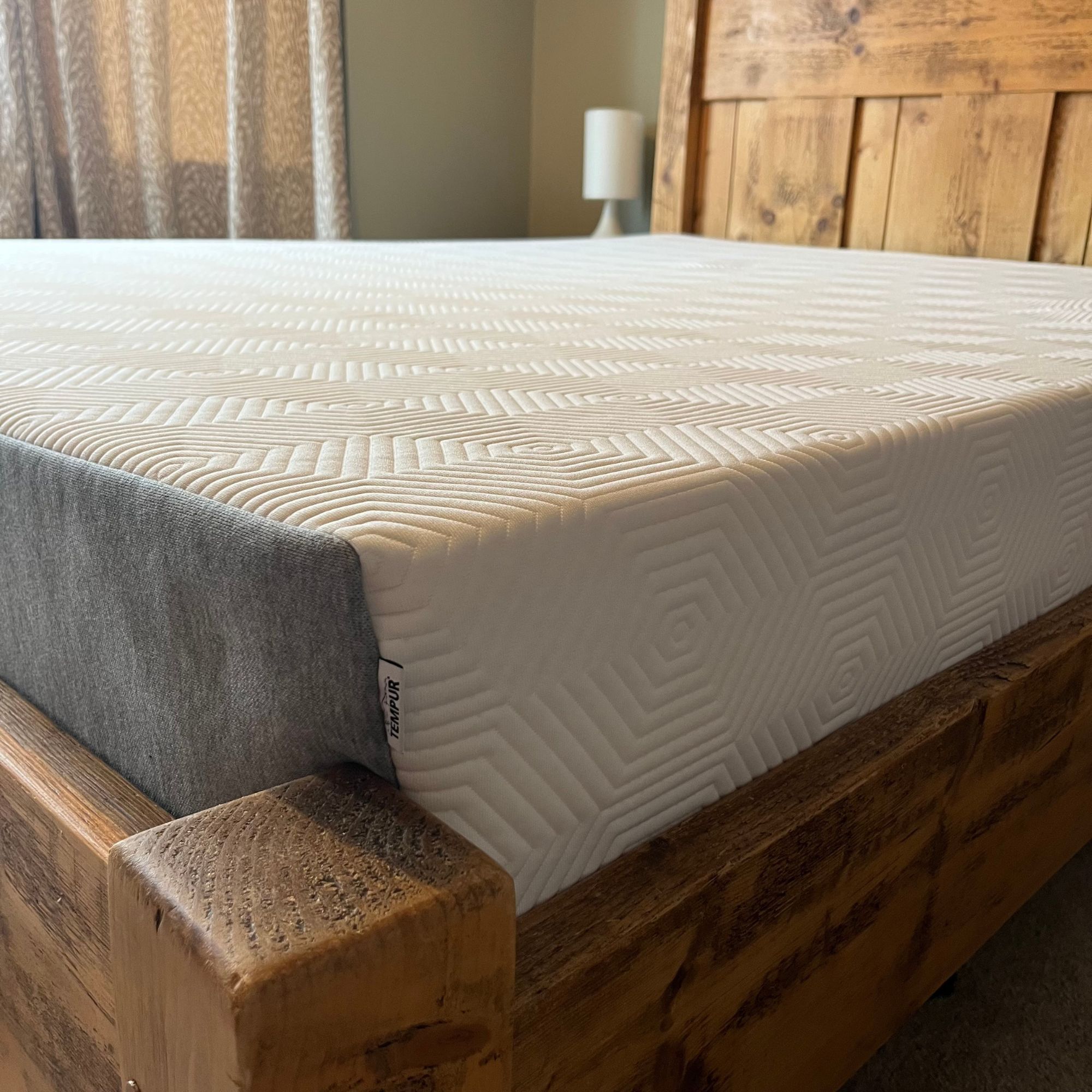
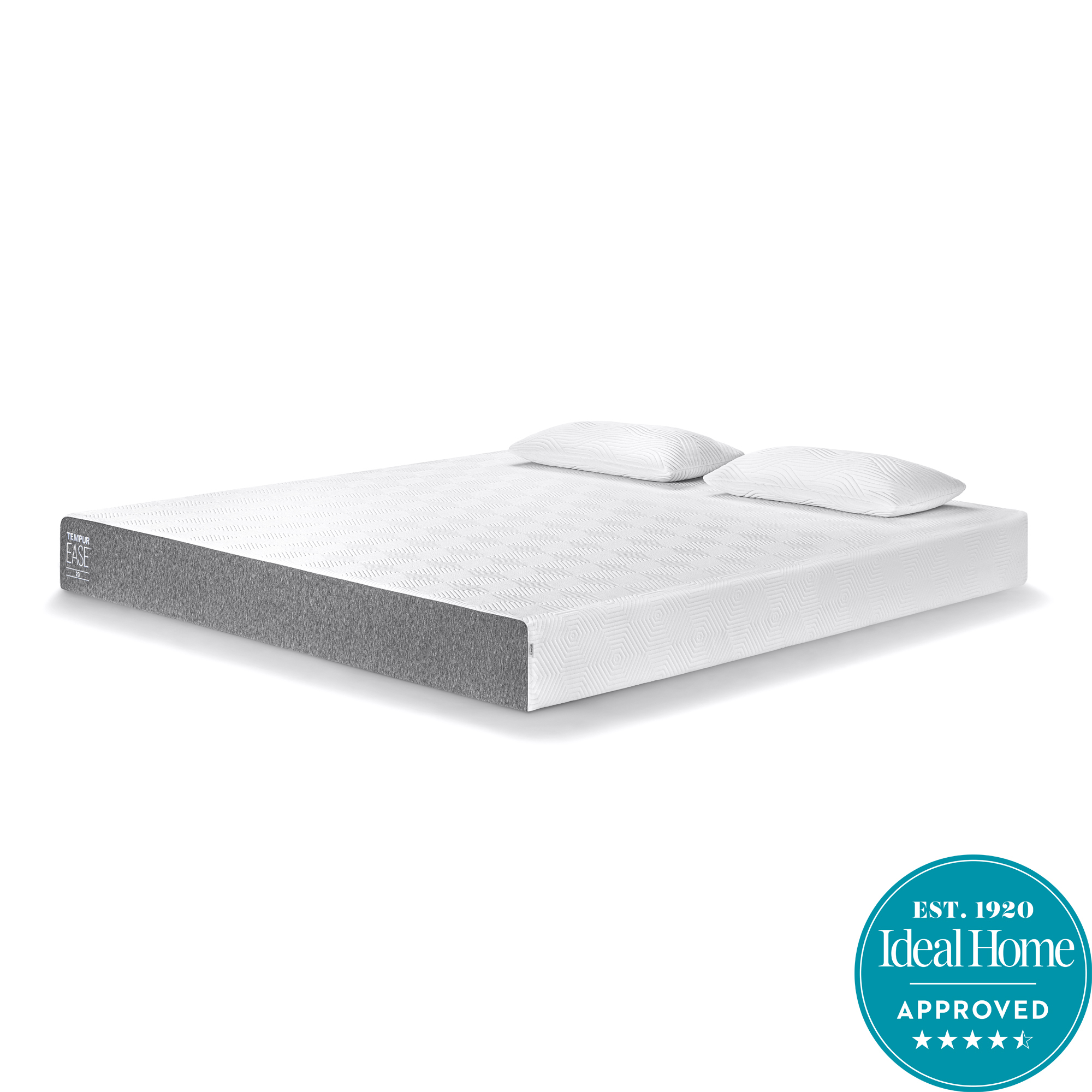
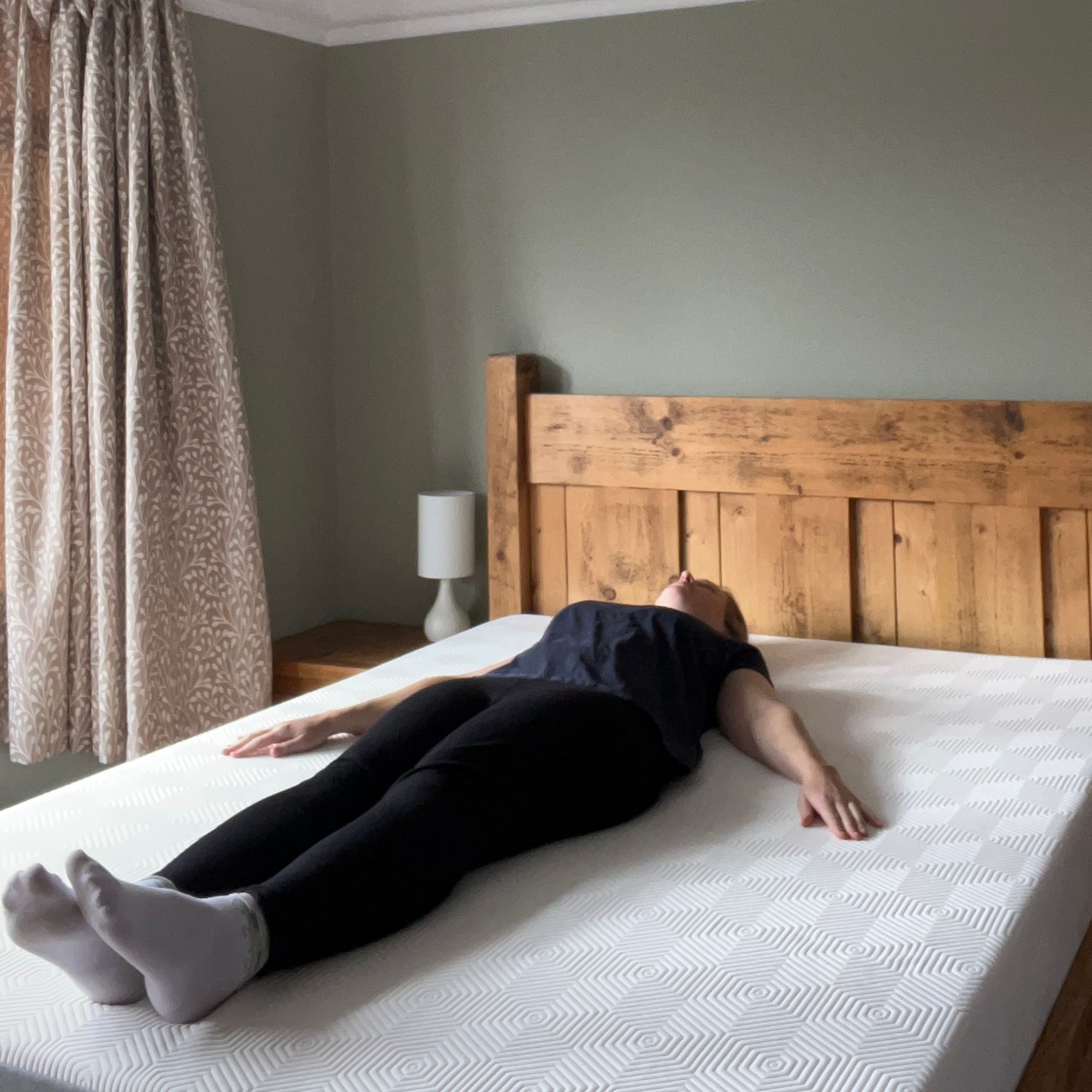
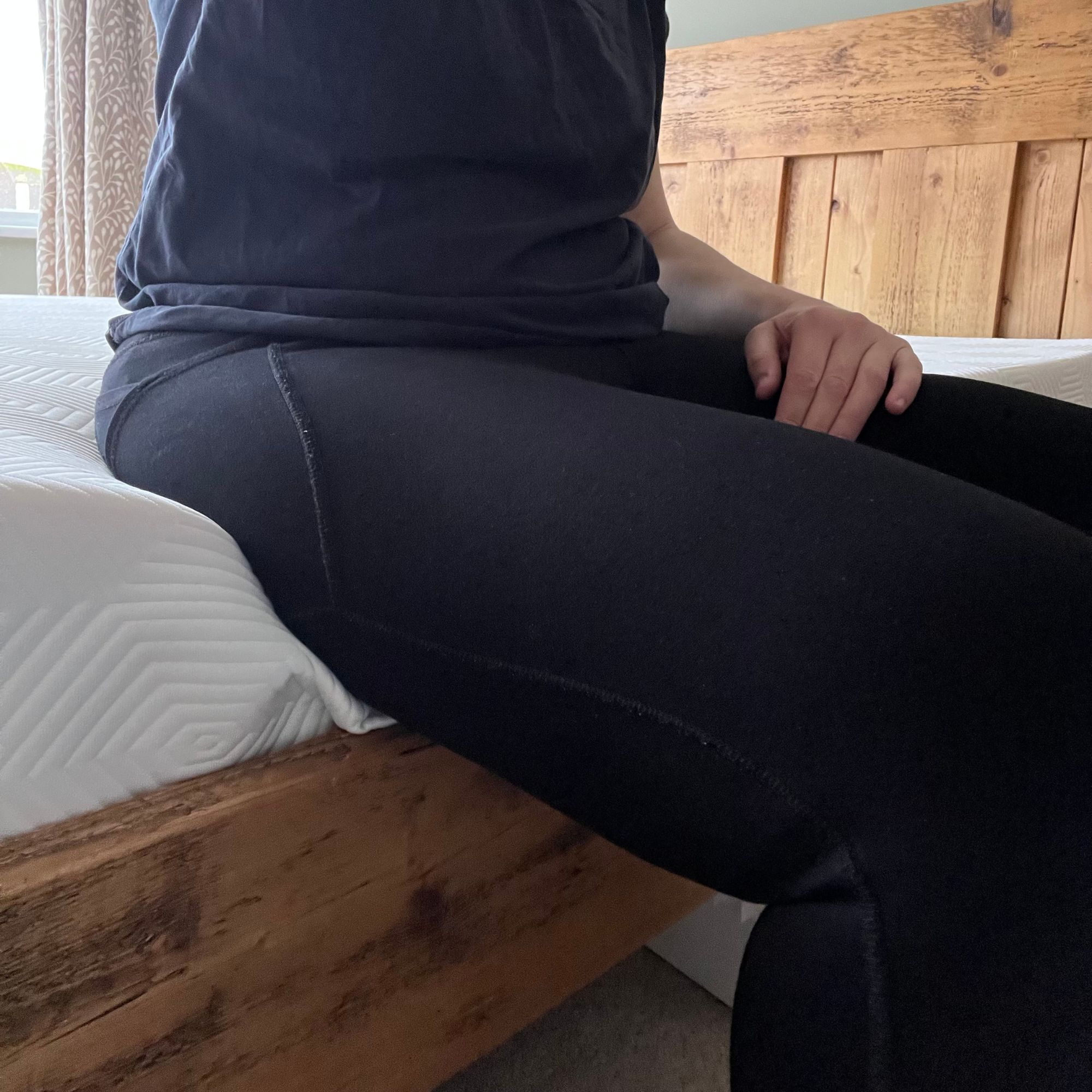
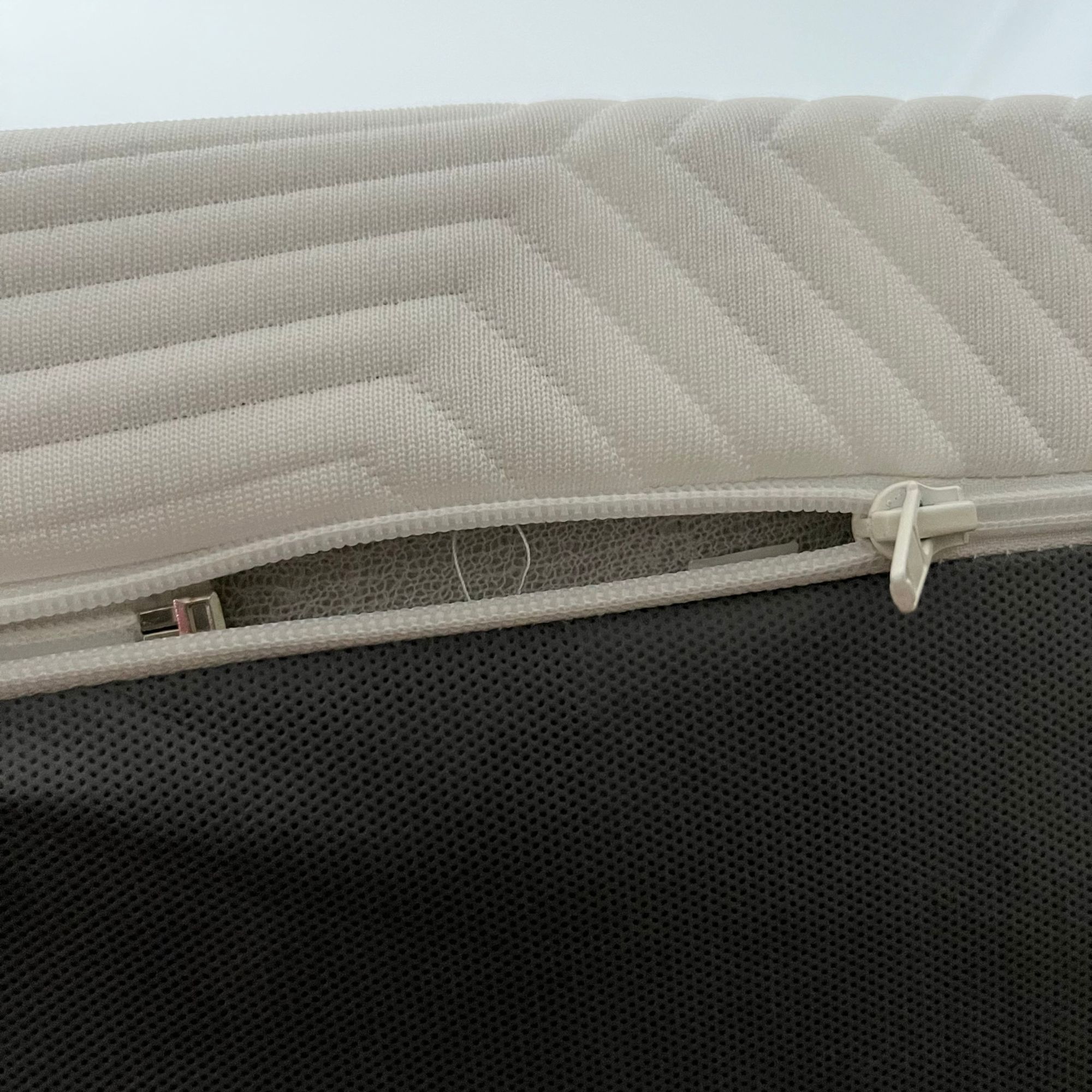
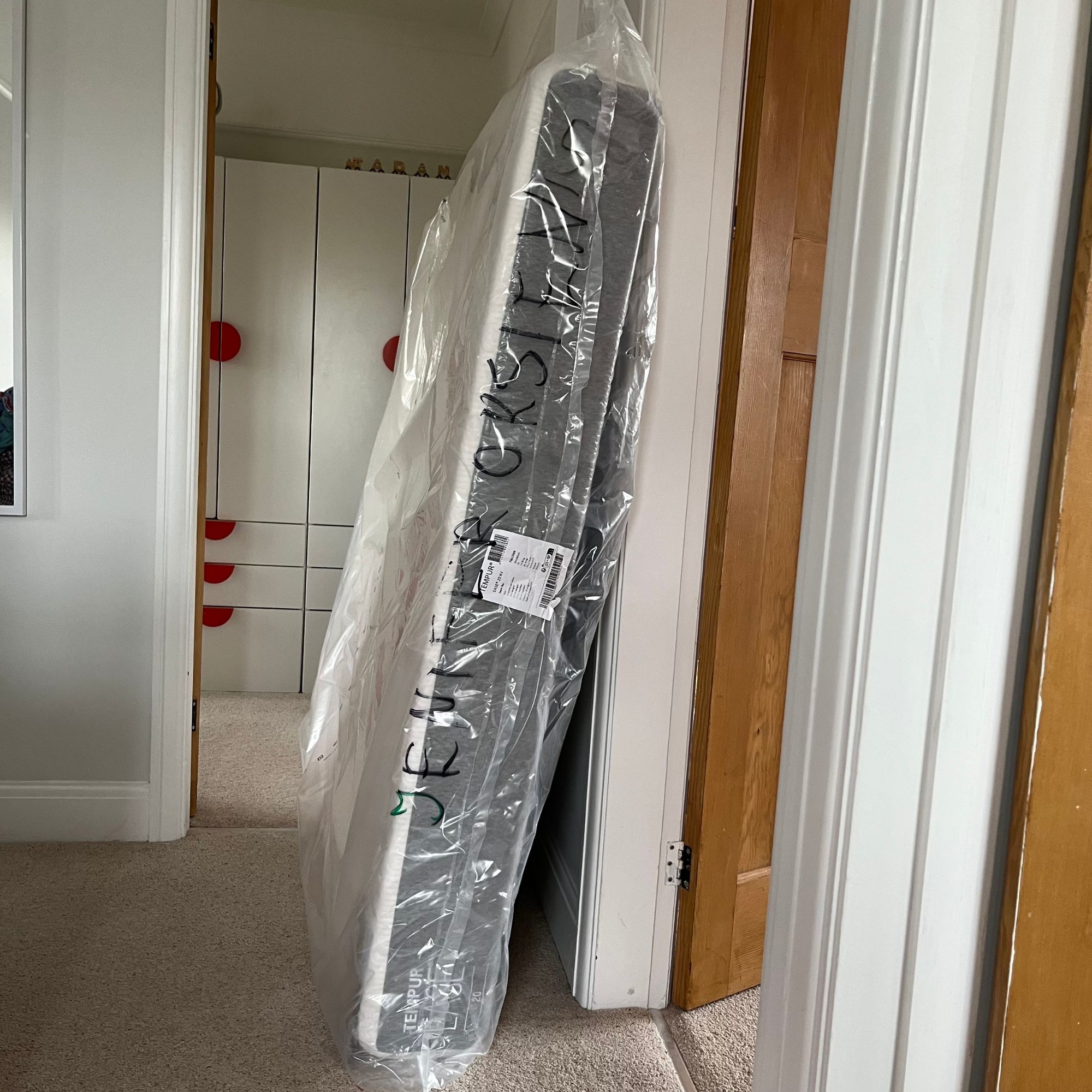
Specifications
Reasons to buy
Reasons to avoid
We used to think TEMPUR's Pro Plus SmartCool mattress was the best memory foam mattress you could buy, but at £1999 for a double, it certainly wasn't cheap. Thankfully, TEMPUR has just launched the brand new, much more affordable EASE memory foam mattress.
This mattress comes in three depths, a 20cm, 22cm, and 25cm option, with prices ranging from £1099 to £1299. We tested the 20cm depth, but our reviewer, Jen, recommends paying the extra for the deepest 25cm option so you get a little more support.
The main difference is that, unlike the Pro Plus SmartCool, which comes in a choice of soft, medium, medium-firm, and firm support, the EASE is only available in a medium-firm tension. However, Jen and her husband were more than happy with the medium-firm feel, finding it offered a great balance of cushioning and support that would suit most side or back sleepers well.
'I found that I slept more comfortably on my side than on any other mattress I've tested,' says Jen. 'My shoulders and hips were relieved of pressure, and I wasn't waking in the night with pins and needles down my arms.'
She also loved the mattress's motion isolation, saying, 'My husband and I both agreed that this mattress exceeded our expectations in terms of how well it absorbed movement. We have a young family, so one of us is often in and out of bed during the night, and we were a lot less disturbed by each other's movements on this mattress.'
Jen also found she didn't overheat during the night, and appreciated TEMPUR's 100-night sleep trial. In fact, were it not considerably more expensive for the 25cm depth, and if Jen hadn't been disappointed by its lack of edge support, the EASE might have given our top-rated Simba Hybrid mattress a run for its money.
As it is, if you love the cocooning feel of memory foam cushioning and have a fidgety sleep partner whose movements you'd like to mask, this could well be the mattress for you.
Tested by: Jennifer – Jen's full TEMPUR EASE mattress review has more detail.
Mattress comparison at a glance
Mattress | Price (Double) | Ideal Home Rating | Sleep Trial | Delivery Options |
|---|---|---|---|---|
£799 | 5 | 200 nights | room of choice + white glove | |
£1,400 | 4.5 | 40 night (exchange only) | room of choice | |
£1,525 | 4.5 | varies by retailer | varies by retailer | |
from £1,099 | 4.5 | 100 nights | white glove | |
£525 | 4 | 365 nights | room of choice |
Best of the rest
I've kept this shortlist to just the five best mattresses I've tested, but you might be considering another mattress and wondering how we rate it. If so you'll find all Ideal Home's testing on our mattress reviews page. These are a few alternatives worth a mention.
We've tested all of Emma's range, from the budget-friendly Emma Hybrid Original mattress to the premium Emma Hybrid Airgrid mattress, and, all in all, we think the Emma Hybrid ThermoSync mattress is the brand's best mattress. It's a decent all-rounder that's good value for money, but it was pipped to the post in my shortlist by the Simba Hybrid Original, thanks to Simba's superior delivery options, higher-rated customer service, and greater efforts towards environmentally-friendly manufacturing. However, Emma's sales can offer big discounts, so if you're shopping when there's a reduction, you might well be tempted to choose this mattress instead.
Similarly, I haven't found an IKEA mattress that can outrank any of the mattresses in my shortlist, but thanks to the wide selection of showrooms across the country, they're a convenient choice if you want to test in person and go home with a mattress the same day. Plus, the brand's mattresses are *very* affordable. My top recommendation is the IKEA VALEVÅG pocket sprung mattress. It comes in two tension options (although both feel softer than I'd have liked, so are unlikely to offer heavier-weight sleepers enough support), and it's just £219 for a double. This is for you if you're looking for a bargain.
There are some key differences between a kids and an adult's mattress and we've tested multiple options to find the best kids mattress overall, from the all-natural Little Green Sheep Natural Junior mattress to the memory foam REM-Fit Remy Kidz Eco mattress. However, the Simba Hybrid Kids Mattress is the one that got top marks from our 3-year-old reviewer (and her mattress aficionado Mum). You can find out more in their Simba Hybrid Kids mattress review.
How to choose a mattress
Finding the best mattress for your most comfortable night's sleep can be tricky. That's because we each have different needs, and things like our preferred sleeping position, our weight, and any aches and pains can all affect which sleep surface will suit us best.
Here's my quick guide to what you should consider before you shop.
- Sleeping position: If you're a side sleeper you need a mattress with a well-padded surface that will cushion your shoulder and hip joints and support your waist. A back sleeper generally needs a firmer mattress that doesn't allow the hips to dip too low. The same goes for front sleepers. (However, stomach sleeping is best avoided if you can. 'Sleeping face down is generally advised against, as it significantly increases the likelihood of straining your neck muscles and irritating your lower back', explains Dave Gibson, registered osteopath, sleep expert, and founder of The Sleep Site).
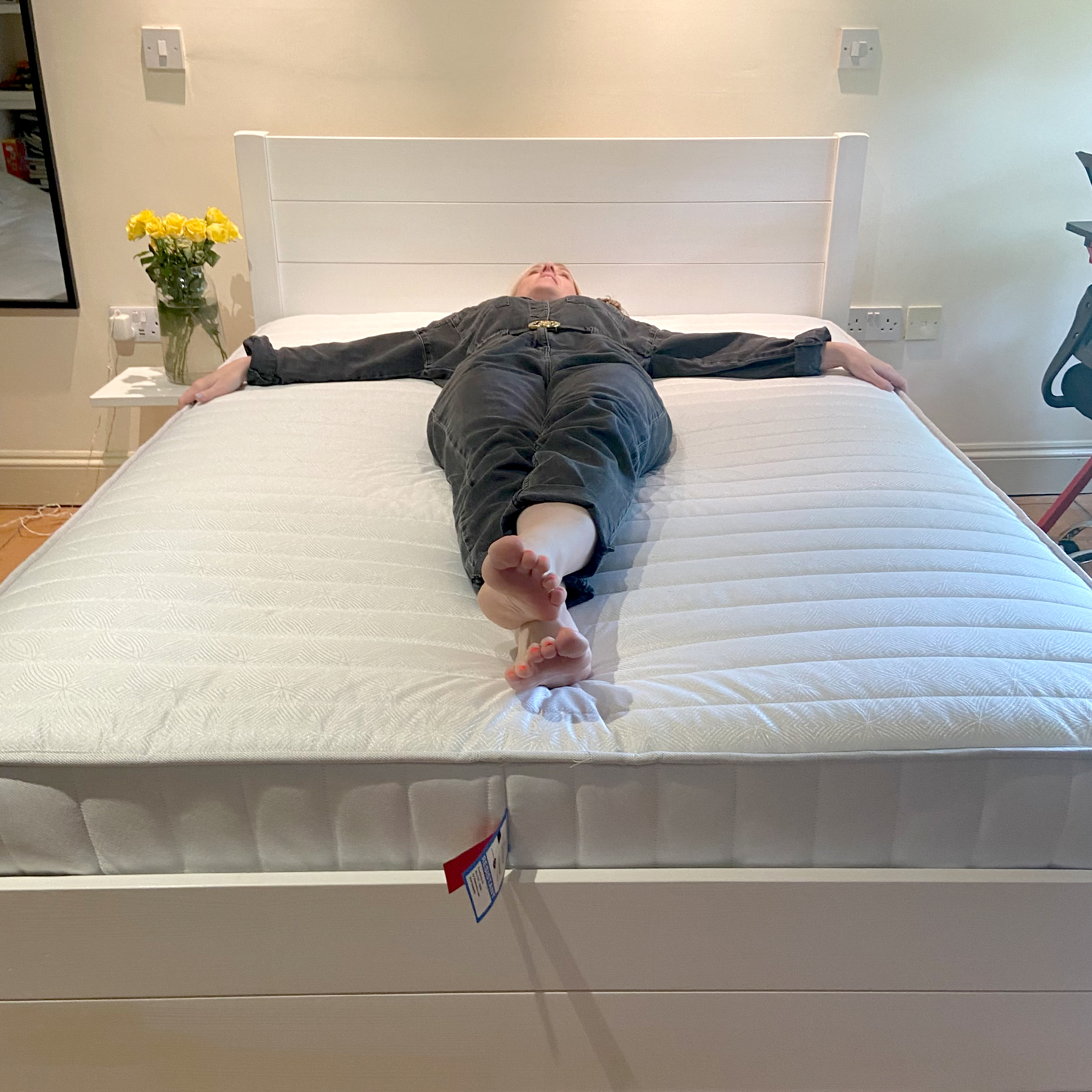
- Motion isolation: If you sleep with a partner, look for a mattress with good motion isolation. This means that when one of you rolls over or tosses and turns in bed, those movements won't vibrate through the mattress and disturb your co-sleeper.
- Responsiveness: If you're an active sleeper who changes position a lot in the night, or you have any mobility issues, the responsiveness of a mattress can be important. This means how easily the surface of the mattress allows you to change position in bed. You may want to steer clear of memory foam which moulds to your body to cradle it and can make turning over more difficult.
- Edge support: A mattress with good edge support will have an even tension across the whole mattress surface. This means that when you sit or lie on the edge of the mattress, it shouldn't dip down too much. This increases the usable sleeping area of the mattress and makes it easier to push off the bed and stand up.

- Weight: Our weight can affect how a mattress feels and the level of support we need. As osteopath Dave Gibson explains, 'heavier individuals may require a firmer support, while lighter individuals might find a softer mattress more comfortable'. Our guide to what type of mattress is best for heavier people has more info.
- Depth: Mattresses differ in depth, with the most affordable options starting at 20cm and luxury models reaching 30cm and above. And as Martin Seeley, sleep expert at MattressNextDay explains, 'thicker mattresses generally offer better support and comfort.' I would say 25cm is a decent depth for someone of average weight, but if you're of a heavier build, more depth can mean more layers and better support.
- Aches and pains: 'Research generally suggests that a medium-firm mattress is best for alleviating lower back pain' says osteopath Dave Gibson. Alternatively, if you're a side sleeper and find your shoulder or hip joints become sore or get pins and needles during the night, you may sleep better on a mattress a pillow top, latex, or memory foam top layer to relieve pressure on the joints. (If your aches and pains are new or temporary, you may also find one of the best mattress toppers can transform the feel of your existing mattress).
- Temperature regulation and breathability: In a study published by the National Library of Medicine, researchers found that being too hot at night can contribute to poor sleep quality. A mattress that offers good breathability makes it easier for your body to maintain a steady temperature and prevents overheating. Breathable mattresses tend to be filled with natural materials, in particular wool, which is well-known for its temperature-regulating properties. In contrast, synthetic materials, like memory foam, lack breathability and can be a bad choice for hot sleepers.
- Ease of care: Mattresses come in two types, one-sided mattresses that will need rotating every few months to ensure even wear and tear, and two-sided mattresses that can be both rotated and flipped upside down. If you live alone or struggle to lift heavy weights a one-sided mattress can be easier to care for, but some people think a two-sided mattress has better longevity.
- Mattress size: If you have a small bedroom you may not have as much choice in mattress size as you'd like. However, when choosing the right mattress size, bigger is usually better, especially if you share a bed. As sleep expert Dave Gibson points out, couples would need to opt for 'a super king to give you the same room as two single mattresses'.
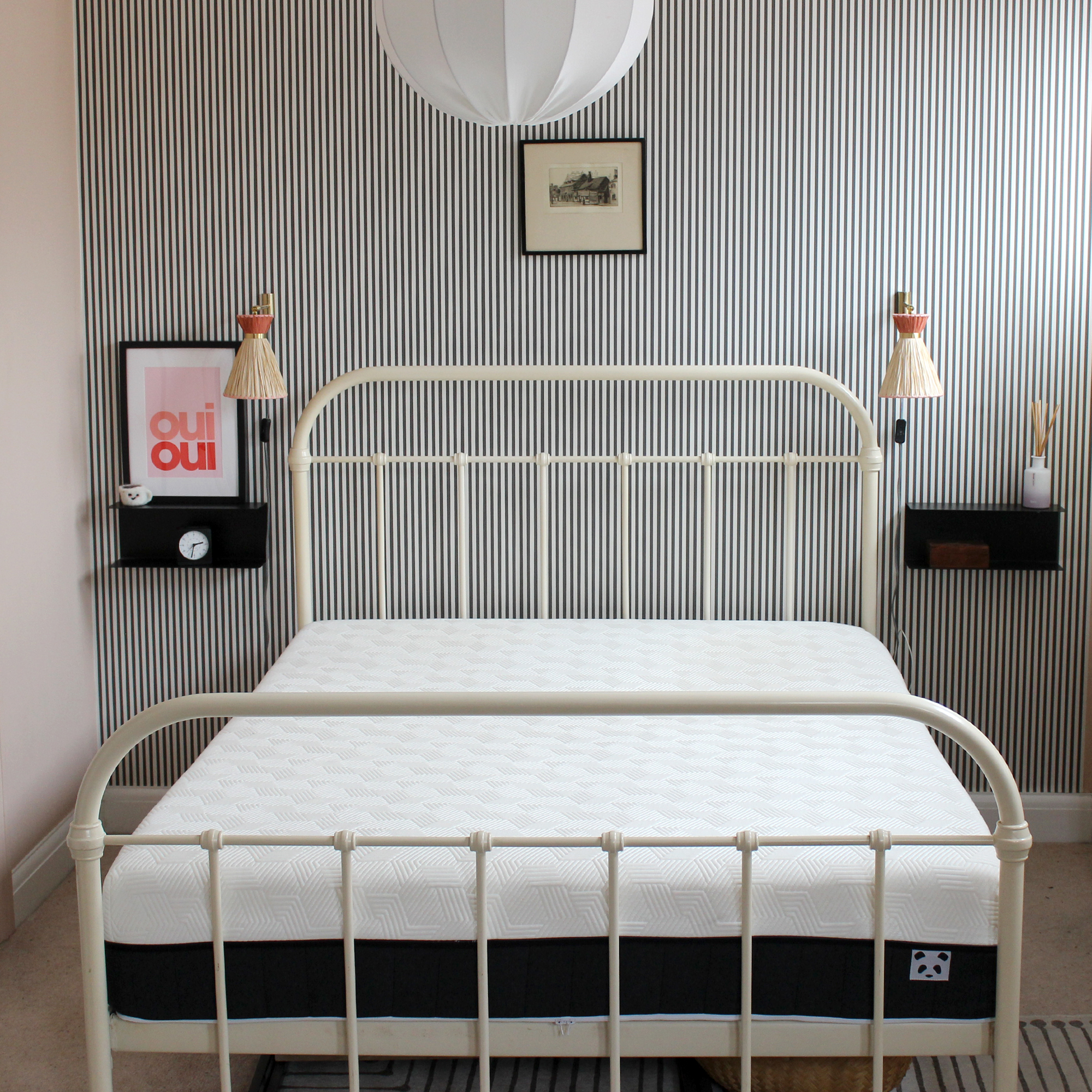
Sleep trial: If possible, look for a mattress with a sleep trial that allows you to test out the mattress at home, on your own bed. This is important because, as sleep expert Dave Gibson explains, 'it can take about four weeks to fully adjust to a new mattress'.
Bed base: Your bed base will affect how a mattress feels. This is why an at-home sleep trial is important. If you're testing a mattress in store, ask for it to be put on a sprung divan bed base, an ottoman bed, or a slatted bed frame that's similar to the base you'll be using at home.
Delivery process: Will your new mattress be delivered as a mattress-in-a-box (super useful for those of us with awkward access) or delivered flat? Our guide to everything you need to know about mattress delivery has more details.
Disposal of your old mattress: You might also want to check if the retailer you're buying your mattress from offers collection and disposal of your old mattress. You can organise this separately – our guide to how to dispose of a mattress explains how – but it's often easier to have the old mattress taken away on the day of delivery.
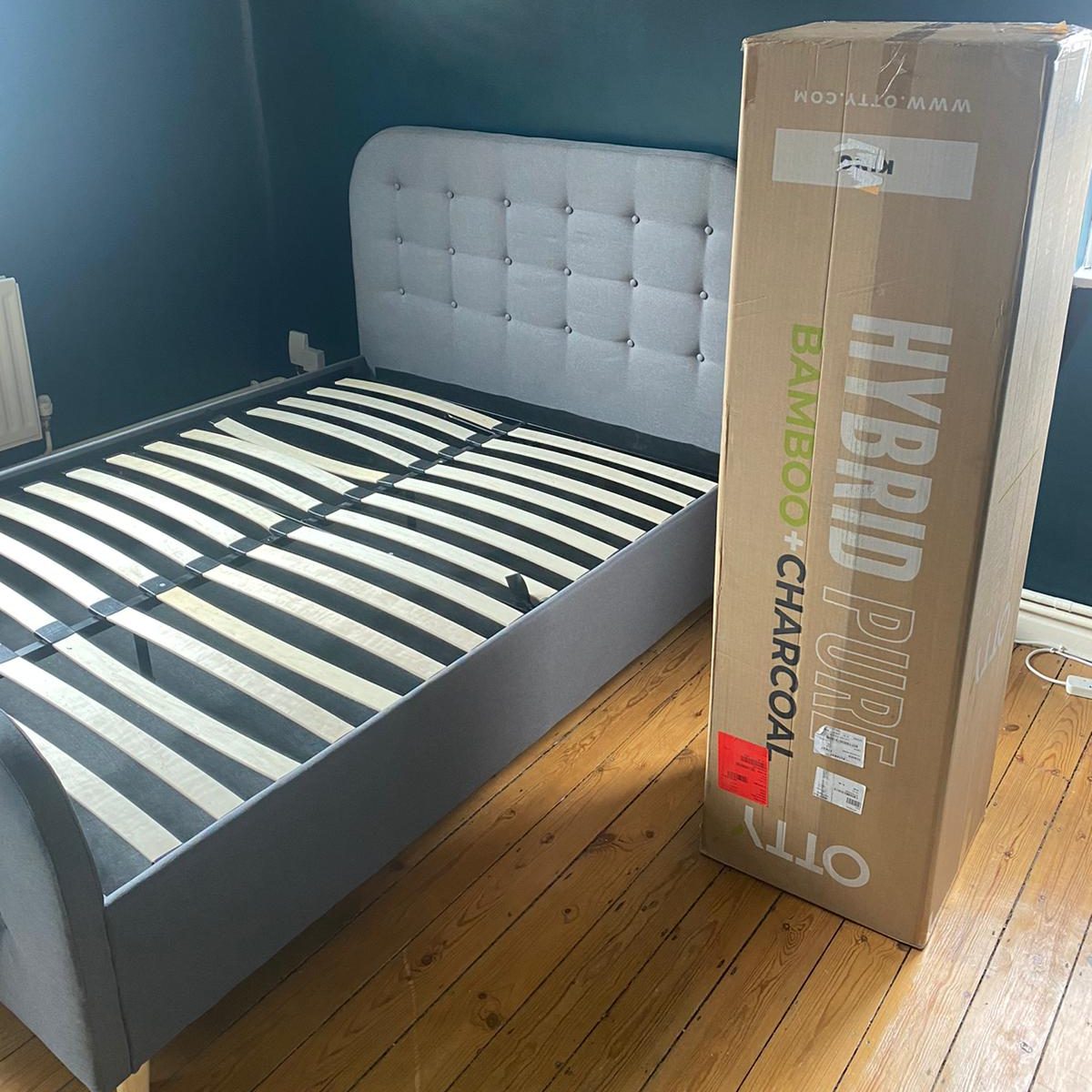
FAQS
How much should I spend on a mattress?
I recommend spending between £800 and £1200 on a mattress. You can get an okay mattress for around the £500 mark if your budget won't stretch that far, but they tend to feel softer and don't offer as much support. That likely means they'll lack durability too.
A budget of £800-plus will get you a decent memory foam or memory foam hybrid mattress. A pocket spring mattress made with natural materials will tend to cost a little more, usually from £1200 upwards.
It's worth considering that a good mattress should last you between seven and ten years. That means you could be sleeping on it for up to 3650 nights. Spending £1200 works out at an investment of 32 pence per day on a good night's sleep.
Is an expensive mattress worth it?
Having tested multiple mattresses at all ends of the price scale, in my opinion, yes, an expensive mattress is worth it, within reason. The mattresses we've tested between £1500-£3000 have offered more layers and used better quality materials than more affordable options. You do get what you pay for.
Plus, you don't necessarily need to pay full price. Our mattress deals page keeps track of all the latest discounts, with savings particularly common during the January sales and the month of Black Friday in November. Time your purchase during a sale and you could save a significant amount.
What is the most highly rated mattress?
The Simba Hybrid Original is the mattress I rate the highest overall. It's a great all-rounder that offers a good level of cushioning and support for most people, and at under £800, it's also great value. I know multiple people who own this mattress, and I haven't heard any complaints.
Which is the best mattress brand?
After four years of testing mattresses, Simba, Silentnight, and Sleepeezee are my top recommendations if you're looking for an affordable mattress. Sealy is a great choice for a firmer mattress, and Tempur offers some of the best memory foam mattresses if you want a mattress that really cushions the joints. If breathability and a cooler sleep are important to you, opt for a natural mattress; Hypnos, Harrison Spinks, Button & Sprung, and naturalmat are all great brands to consider.
Our expert testing panel

I'm Amy, and I've spent the last four years testing mattresses from all the leading mattress brands, as well as the best pillows, duvets, toppers, and all things sleep-related. I’m a hot sleeper, so the super breathable Hypnos Pillow Top Select mattress is what's currently on my bed, although it was hard to part with the Simba Hybrid Original after testing.

I'm Rachel, a side sleeper and a mother of two who's recently put a whole host of under £500 mattresses through Ideal Home's testing process to find the best budget-friendly buys. After lugging more than ten mattresses up our narrow staircase, my husband and I were more than happy to collapse onto the winner, the DreamCloud Hybrid mattress.

I'm Jullia, one of the Ideal Home team's Certified Experts in product testing. My partner and I recently tested and reviewed the TEMPUR Pro Plus SmartCool mattress, and it easily delivered the best night's sleep we've had in a long time. The only problem is finding motivation to climb out of bed in the morning.

I'm Zoë, a product tester and mum of three who specialises in sleep content. I've spent numerous years writing about all things sleep-related for The Independent, The Evening Standard, and many more. My husband and I sleep on Hypnos Wool Origins 6 mattress at home, and regularly test out new sleep launches for Ideal Home.

I'm Jen, a mother of two with 10 years of experience as an editor and product reviewer specialising in home appliances, smart tech, and mattresses. Myself and my 4-year-old daughter regularly test out childrens' mattress for Ideal Home. Our favourite so far? The Simba Hybrid Kids mattress, which my daughter couldn't wait to jump into (and onto).

I'm Molly, one of the Ideal Home team's Content Editors and Certified Experts. My partner (who is a hot sleeper, and roughly the temperature of the sun's surface during the night) and I have put a roster of Emma mattresses through Ideal Home's testing process – from the Emma Original to the Emma Hybrid ThermoSync mattress.
Sign up to our newsletter for style inspiration, real homes, project and garden advice and shopping know-how

Amy is Ideal Home’s Sleep Editor and the Ideal Home Certified Expert on Sleep. She's spent the last four years researching and writing about what makes for the best night’s sleep during the day and testing out sleep products to find the best-in-class by night. So far she’s clocked up over 10,000 hours of pillow, duvet, and mattress testing experience.
Our go-to for all things sleep-related, she’s slept on and under bestselling products from Simba, Emma, Hypnos, Tempur, Silentnight, Panda, and many many more.
As a hot sleeper, Amy is always on the lookout for the most breathable bedding, but she also leads a wider team of testers to ensure our product testing encompasses both hot sleepers, cold sleepers, front sleepers, back sleepers, side sleepers, and everything in-between.
